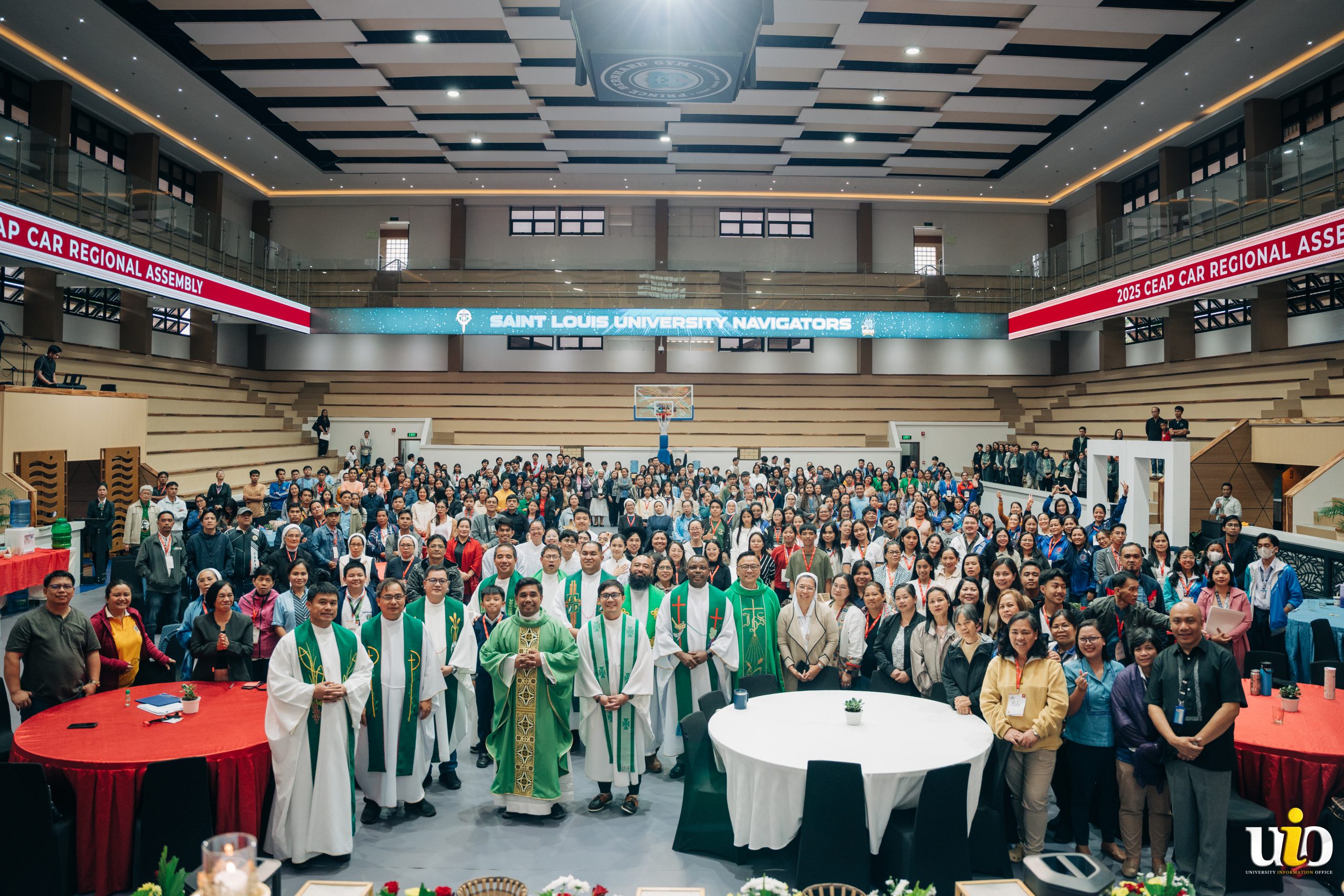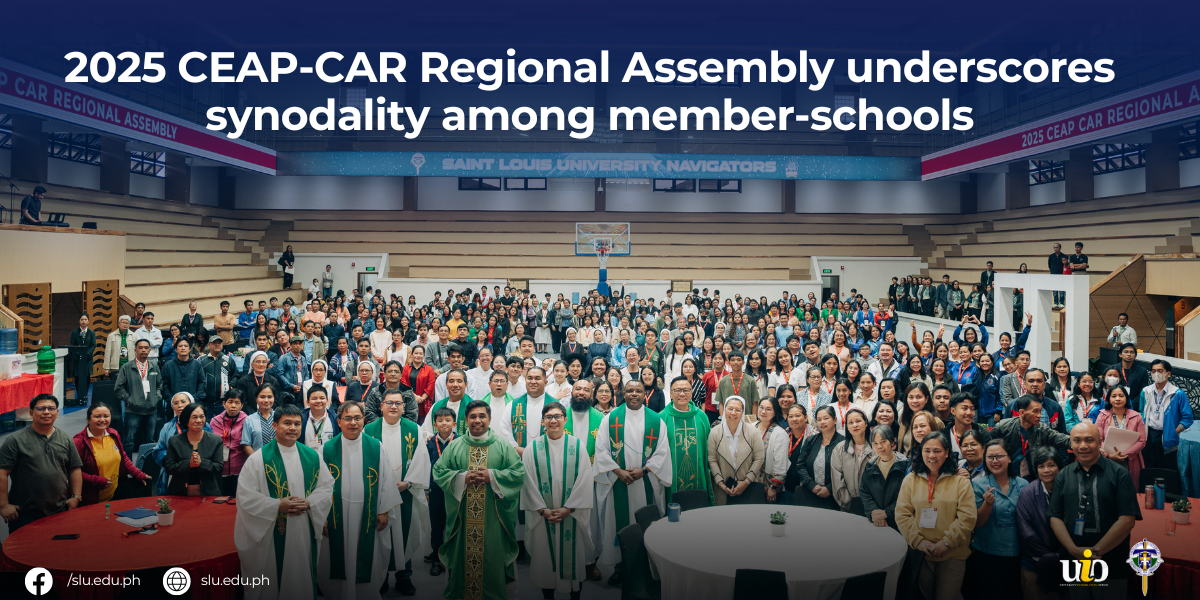The 2025 CEAP-CAR Regional Assembly concluded in Saint Louis University (SLU) on 05 September 2025 at the Prince Bernhard Gym, SLU Main Campus leaving participants with a renewed sense of hope, purpose, and synodality towards reinforcing its mission to support Catholic education and nurture leaders who walk as pilgrims of hope in their academic and spiritual journeys.
By understanding the pressing concerns in education today and how essential principles of synodality, positive behavior support systems, and wellness are applied in everyday contexts, classrooms in Catholic schools become more than places of knowledge. They become places where learners grow in faith and character, bearing abundant fruit under the leadership of Christ.
As SLU President Rev. Fr. Gilbert B. Sales, CICM, PhD said during his report as CEAP CAR Regional Trustee, “The path we walk as Catholic educators – pilgrims of hope – is made more meaningful because we walk together. What truly underpins the success of all our regional initiatives is the strong collaboration and communication among our 48 Catholic schools across the Cordillera Administrative Region. This robust network of educational institutions has allowed us to share resources, replicate best practices, and respond swiftly to challenges with a unified voice. Each school’s participation, whether large or small, has made a significant difference in ensuring our programs are inclusive, mission-driven, and impactful,” he stated.
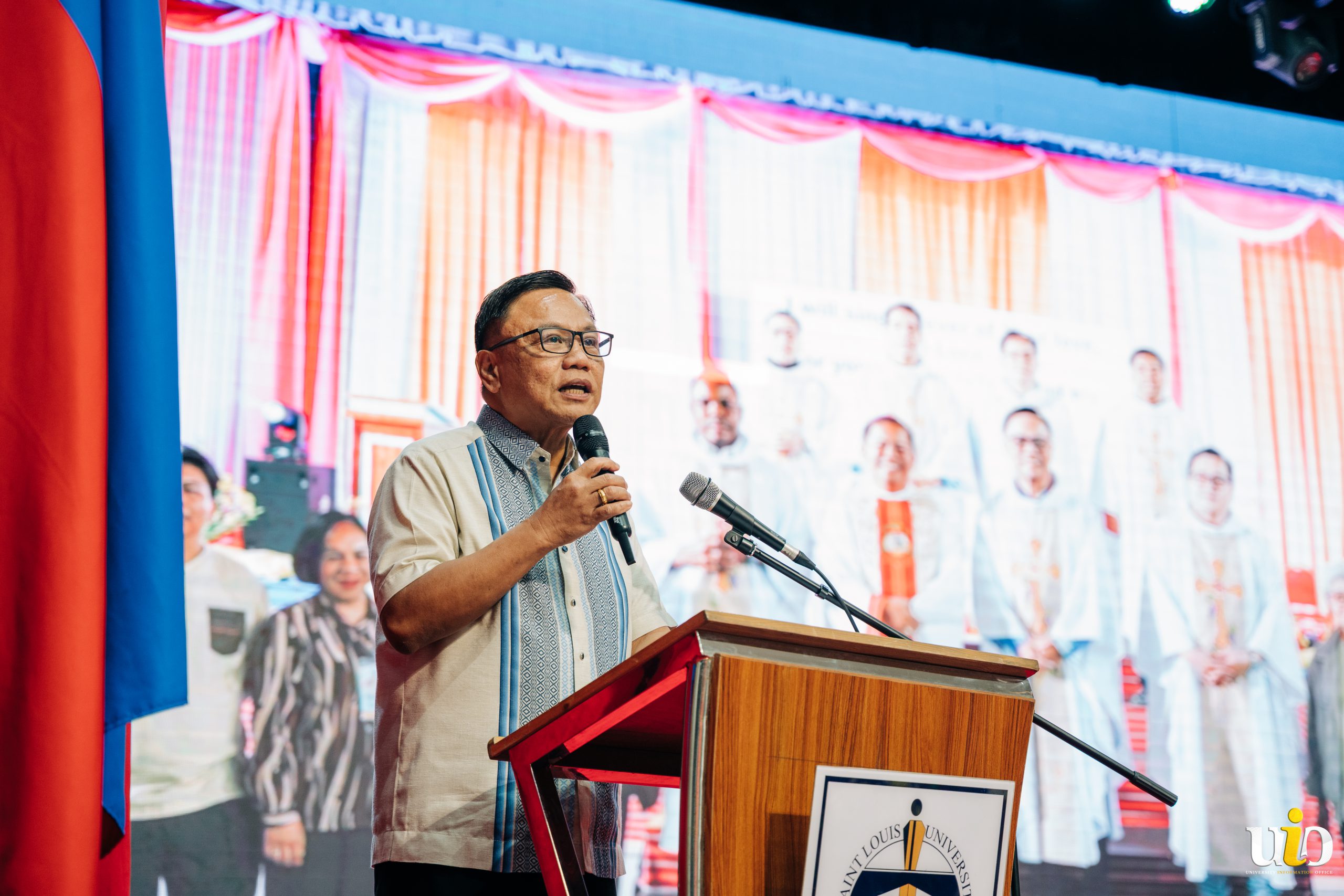
Rooted on the theme, “Living Synodality as Pilgrims of Hope,” the curated activities and topics of the two-day event served as platforms for the much-needed community dialogue and exchange of knowledge and ideas on how Catholic education stays relevant in the world today.
Keynote Talk: Living Synodality as Pilgrims of Hope
The keynote address by Most Reverend Charlie M. Inzon, OMI, Bishop of the Apostolic Vicariate of Jolo and chairperson of the Catholic Bishops’ Conference of the Philippines (CBCP) Episcopal Commission on Catholic Education highlighted the theme of living synodality as pilgrims of hope, encouraging participants to embody hope and faithfulness in their educational ministry. He said, “Catholic schools must be more than classrooms of knowledge; they must be places filled with God’s presence and persons with immense hope and optimism despite advocacy precisely because we have the courage, we have the will to go down from our pedestal to embrace the people that need us. Therefore Catholic schools must reclaim their founders’ vision: to prioritize the most vulnerable…Synodality is for the most vulnerable persons in our society. It involves three interrelated dimensions: Communion, Participation, and the purpose of it all, Mission.”
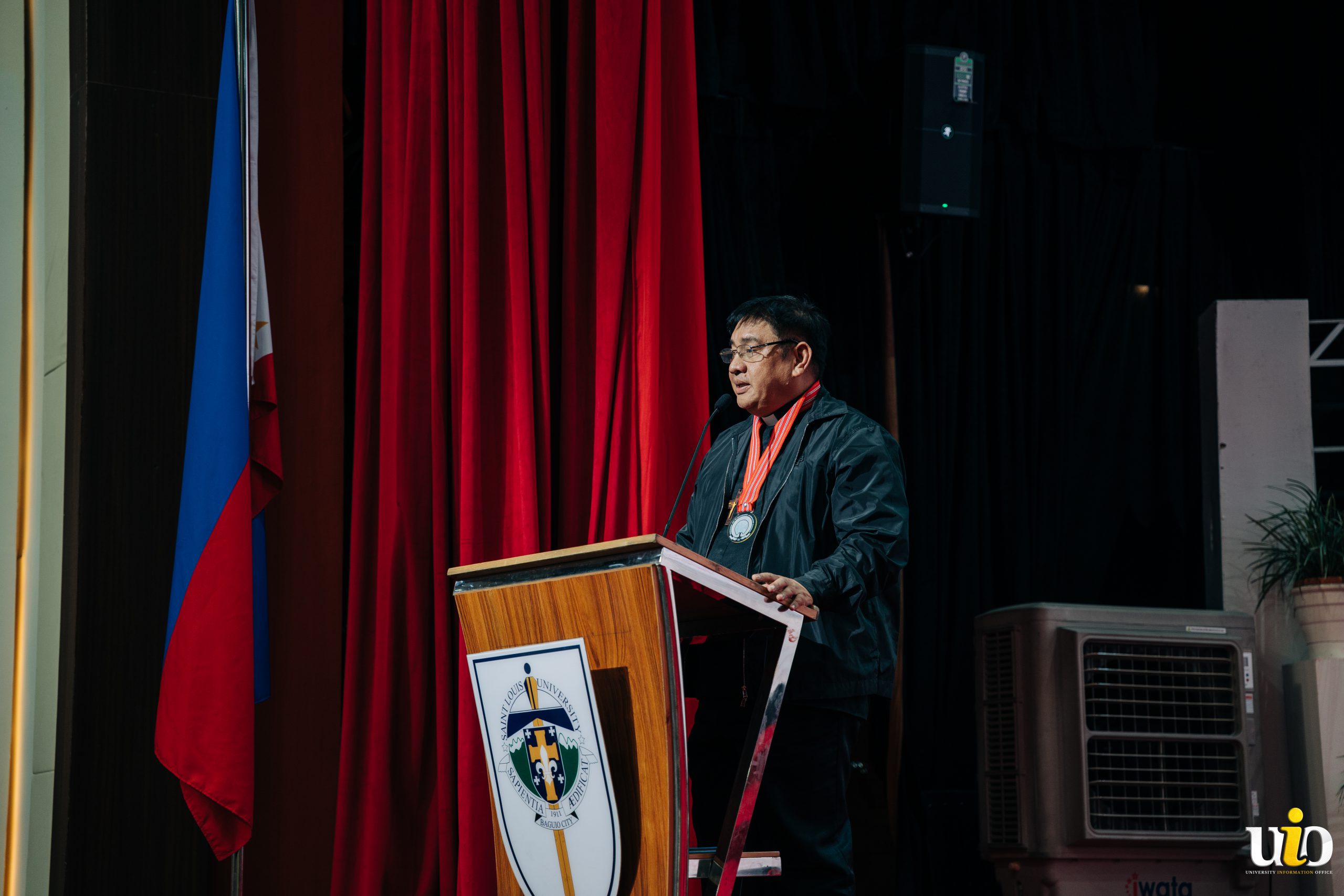
Most Rev. Inzon also mentioned, “My dear friends, our journey as Catholic schools is like that of a river. A solitary stream may be absorbed by dry land never reaching the sea, but when rivers join together, they become a mighty that flows surely into the ocean. Together Catholic schools can become places where God shines, where struggles are shared, where education is inclusive and just, where community and participation flourish, and where fraternity stands.”
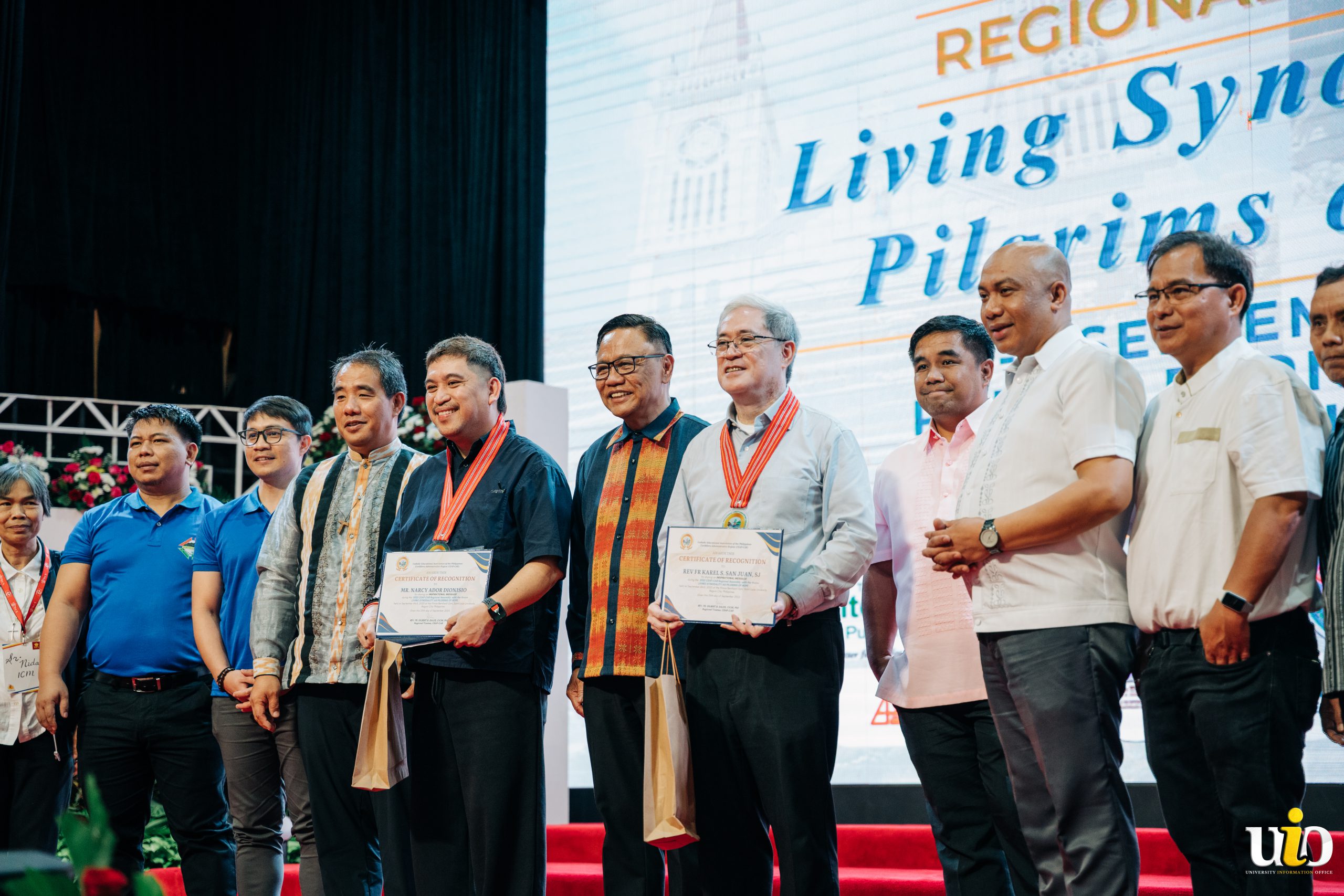
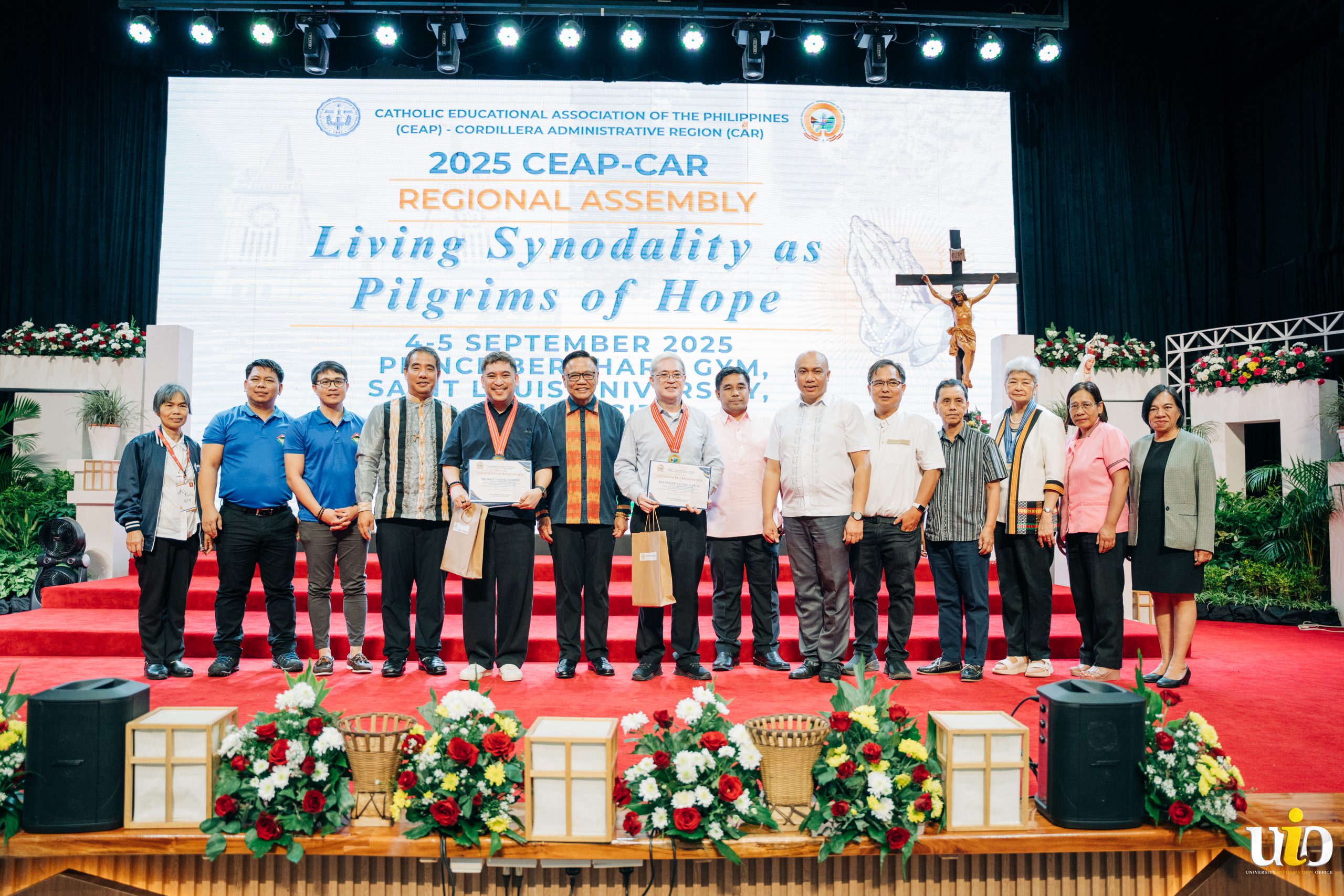
Plenary Talk 1: Promoting Positive Behavior Support (PBS) Systems
The assembly’s substantive Plenary Talk 1 by Monina M. Manalang, PhD, the Associate Vice President for Student Services and Affairs at Holy Angel University and Chairperson of the PAASCU Basic Education Commission, focused on “Promoting Positive Behavioral Support Systems Towards Student Achievement.” Her talk went in depth on what it means to promote positive behavioral support systems towards student achievement, key aspects of promoting positive behavioral support systems, positive behavior support strategies, as well action plans in fostering positive behaviors. Dr. Manalang ended her discussion by posing a challenge. “To proactively address student needs and implement strategies that promote positive interactions and a sense of belonging to be able to enhance academic performance and overall well-being of our students,” she said.
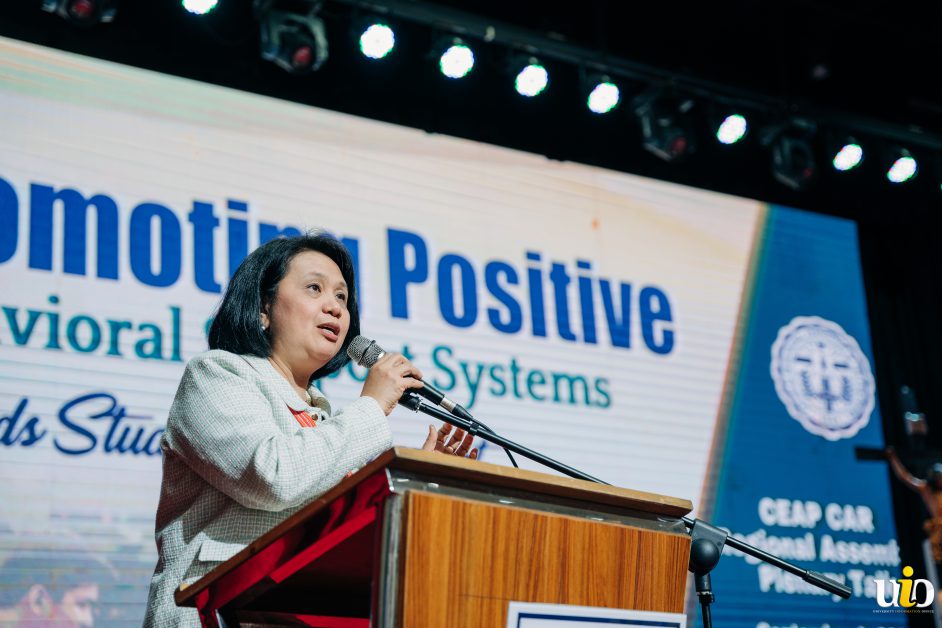
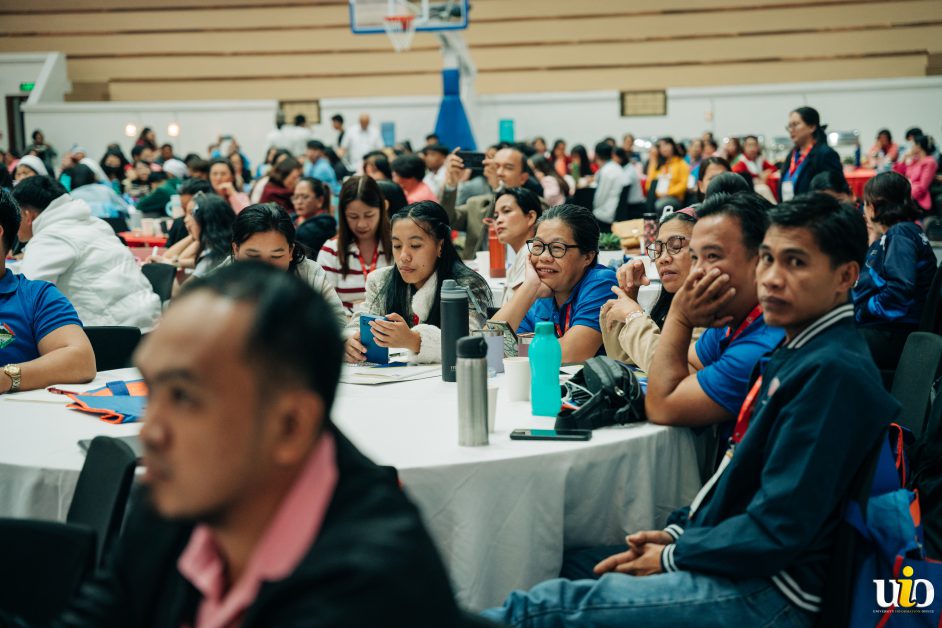
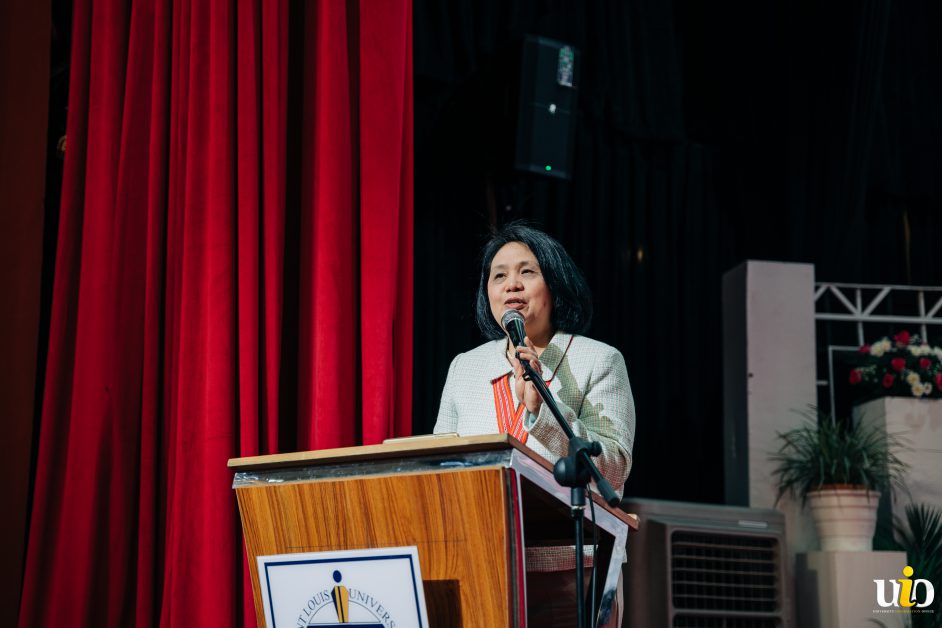
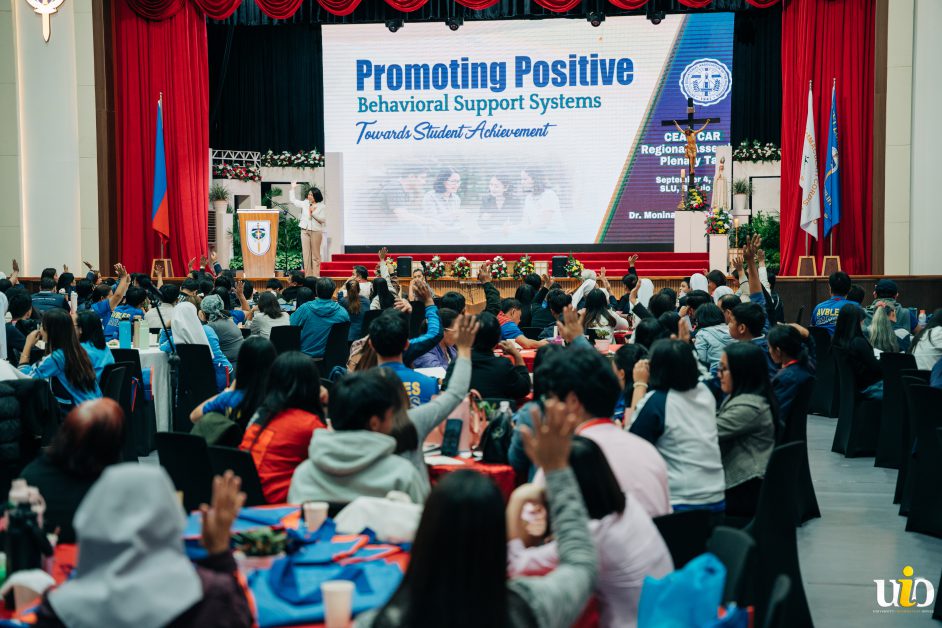
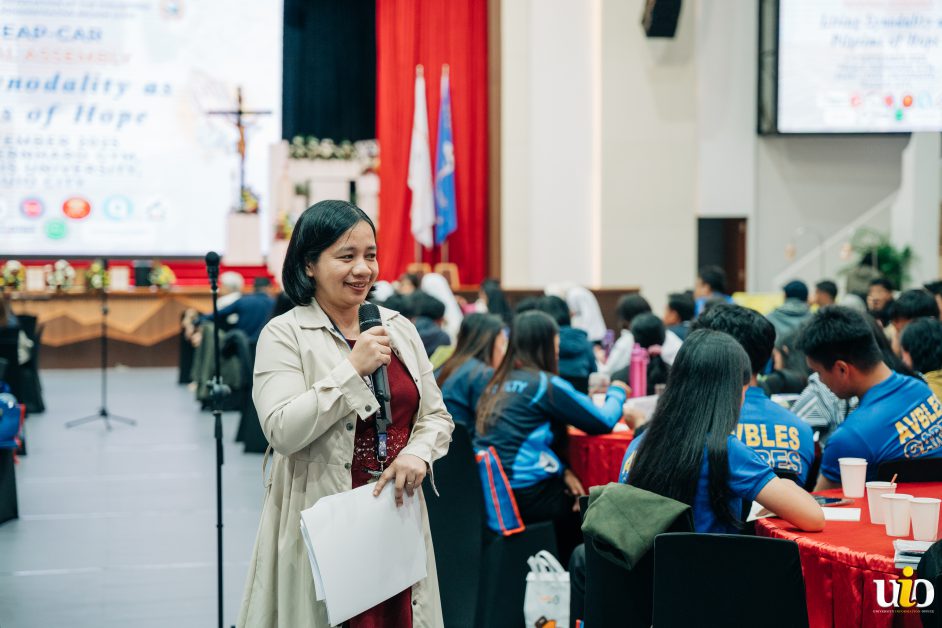
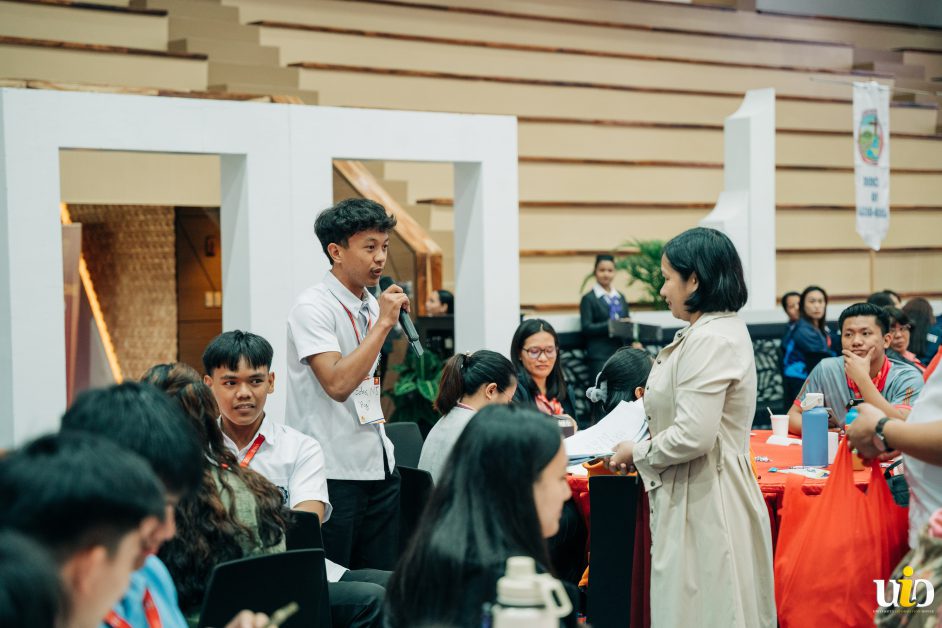
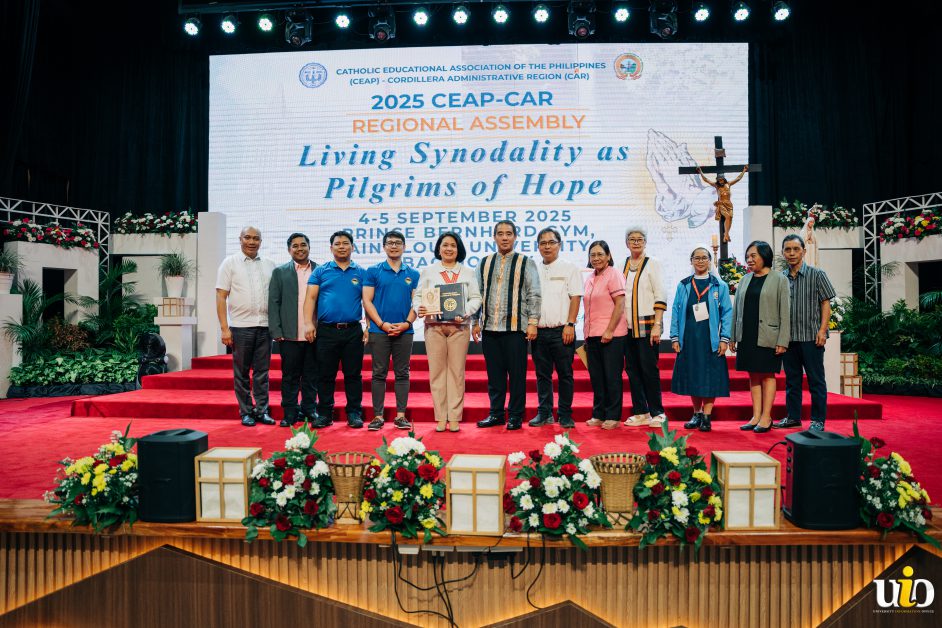
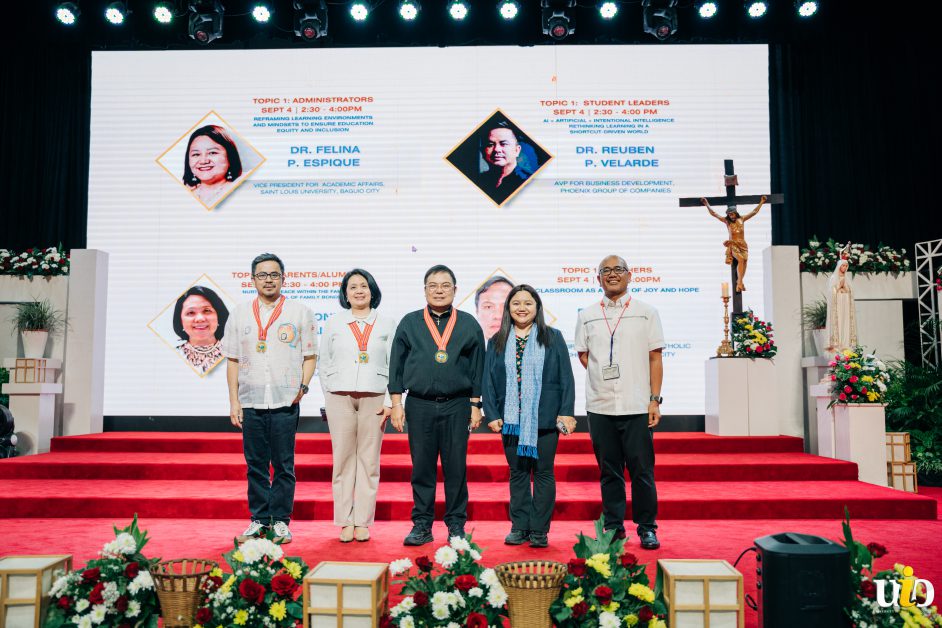
Breakout Sessions Foster Dialogue and Knowledge-Sharing
The Regional Assembly included engaging breakout sessions that are tailored to the specific roles of the participants.
Day 1 Sessions:
- Administrators explored reframing learning environments and mindsets to foster education equity and inclusion, led by Felina P. Espique, PhD, Vice President for Academic Affairs at SLU;
- Teachers gathered insights on making classrooms joyful and hopeful spaces with Henry A. Davalos, PhD, Principal of San Felipe Neri Catholic School;
- Parents and alumni reflected on nurturing peace within the family and renewing family bonds guided by Dr. Manalang;
- Student leaders tackled “AI = Artificial + Intentional Intelligence: Rethinking Learning in a Shortcut-Driven World” under the expertise of Reuben P. Velarde, PhD, AVP for Business Development of the Phoenix Group of Companies.
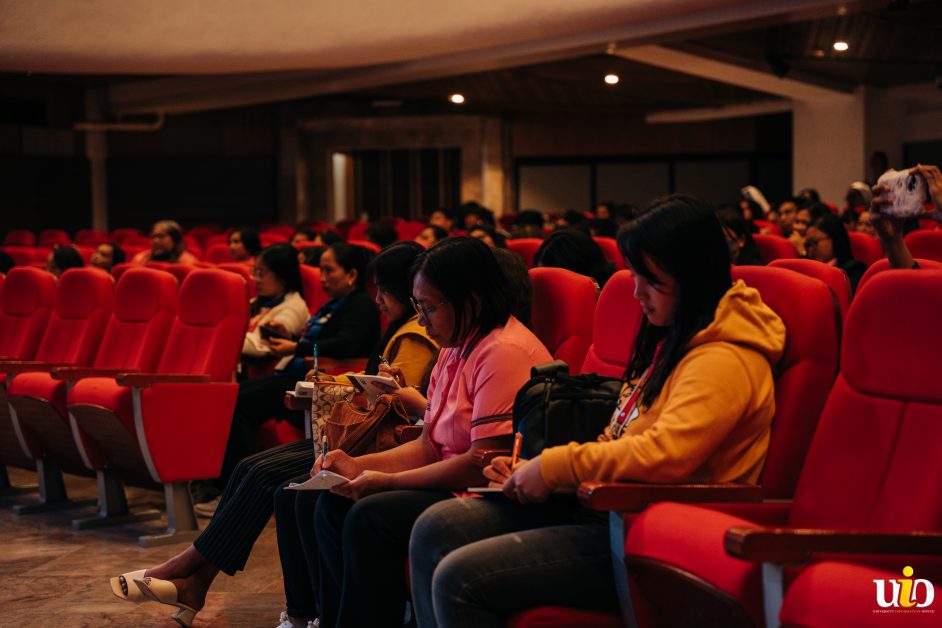
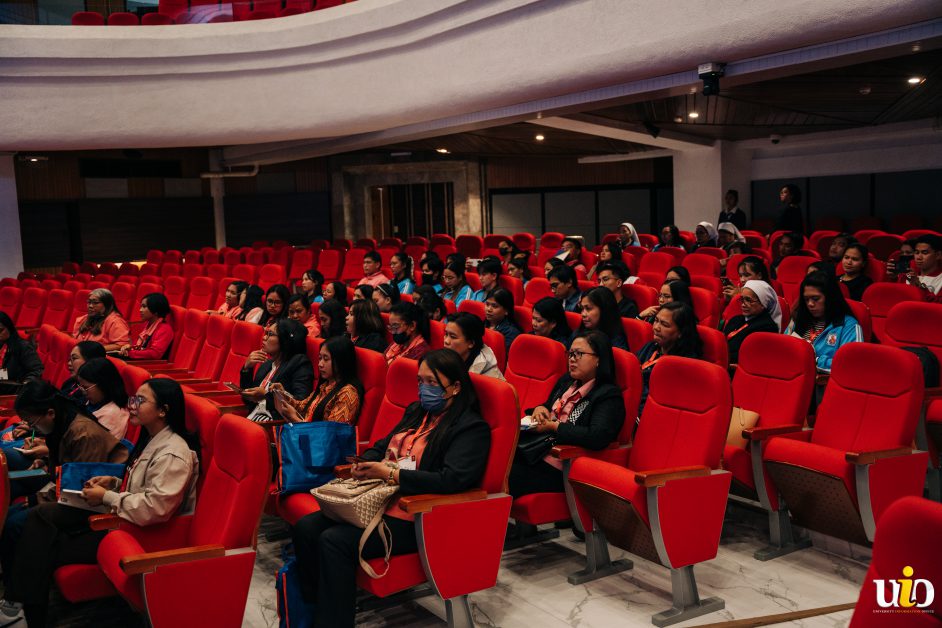
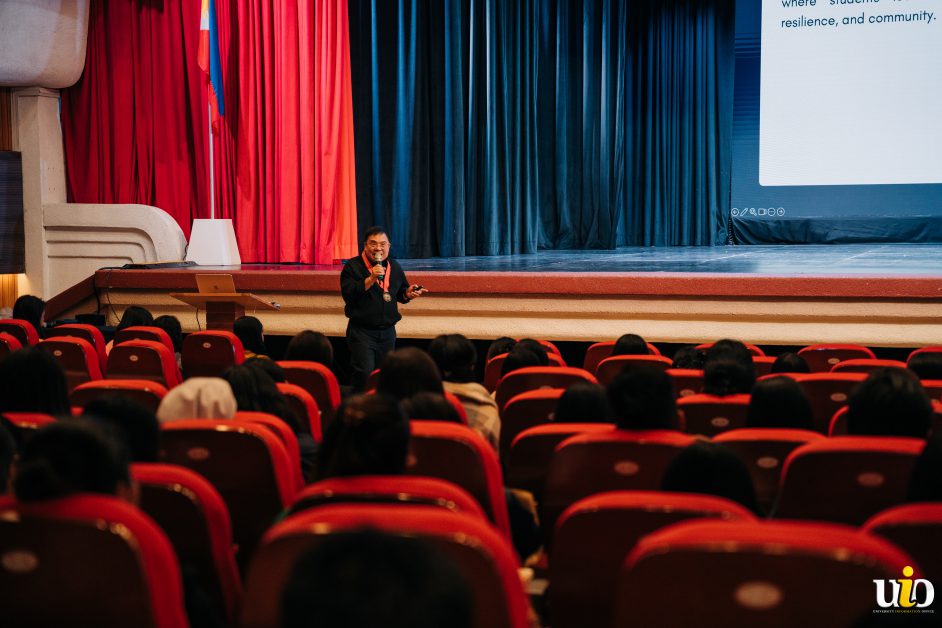
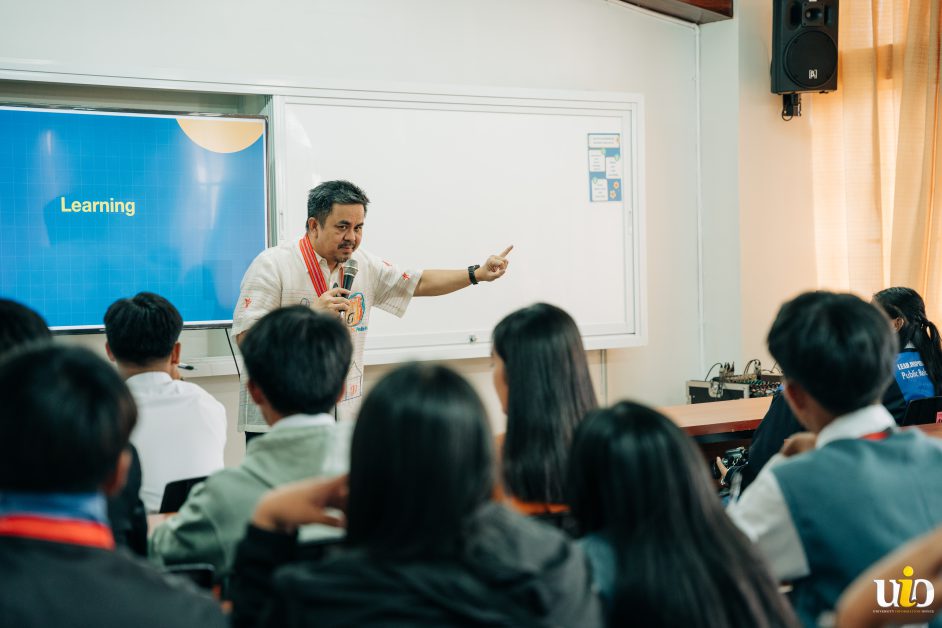
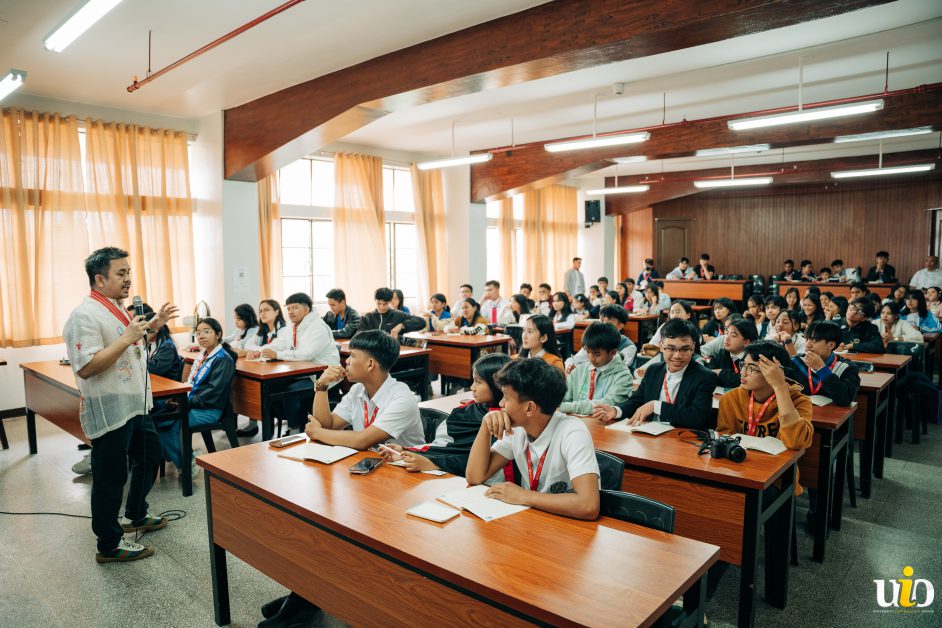
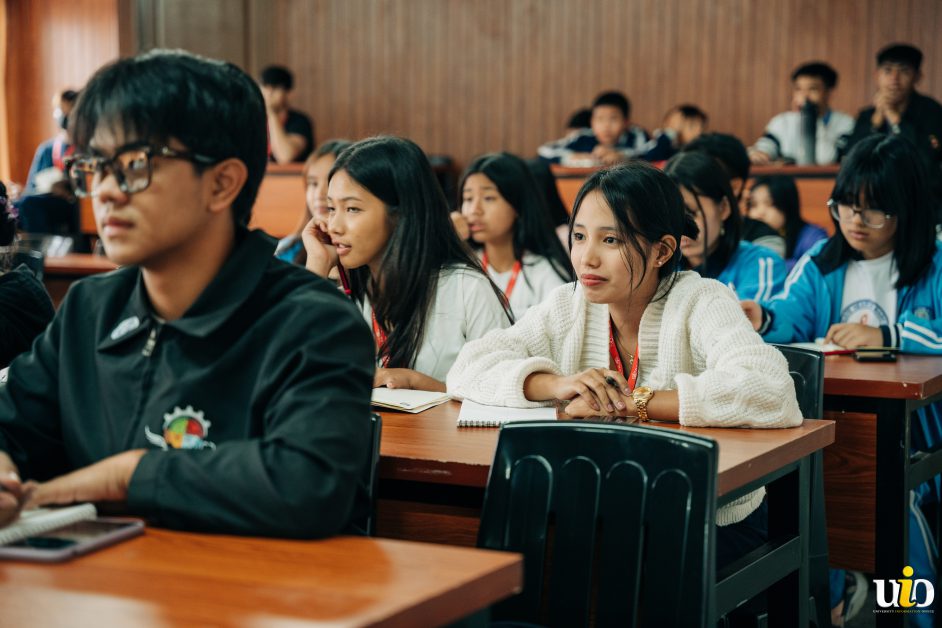
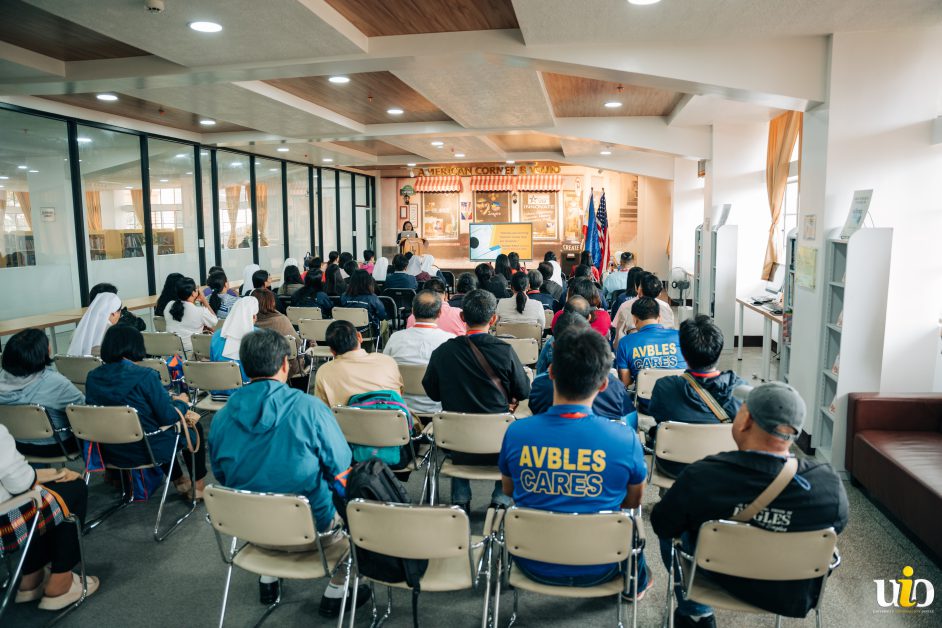
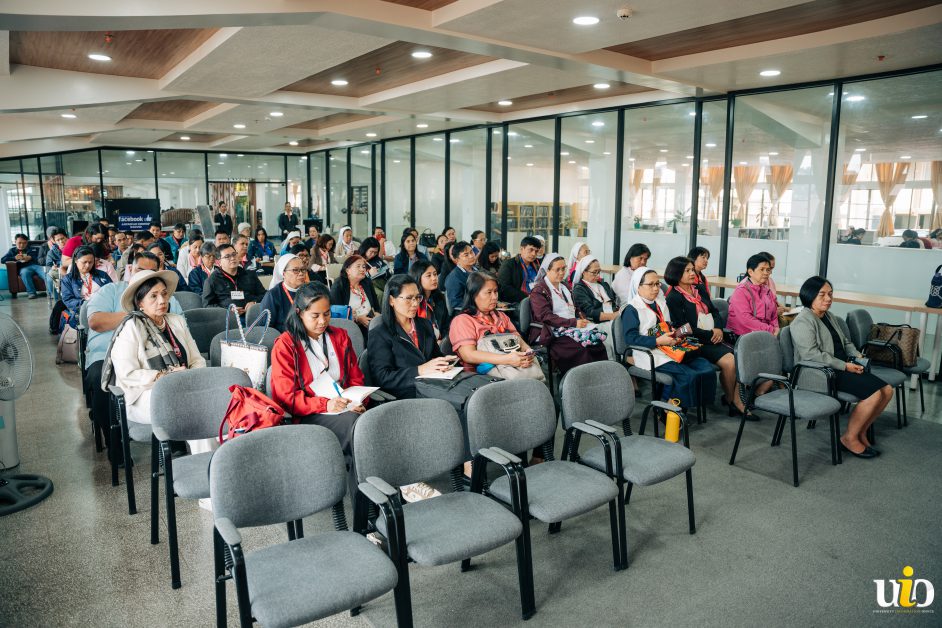
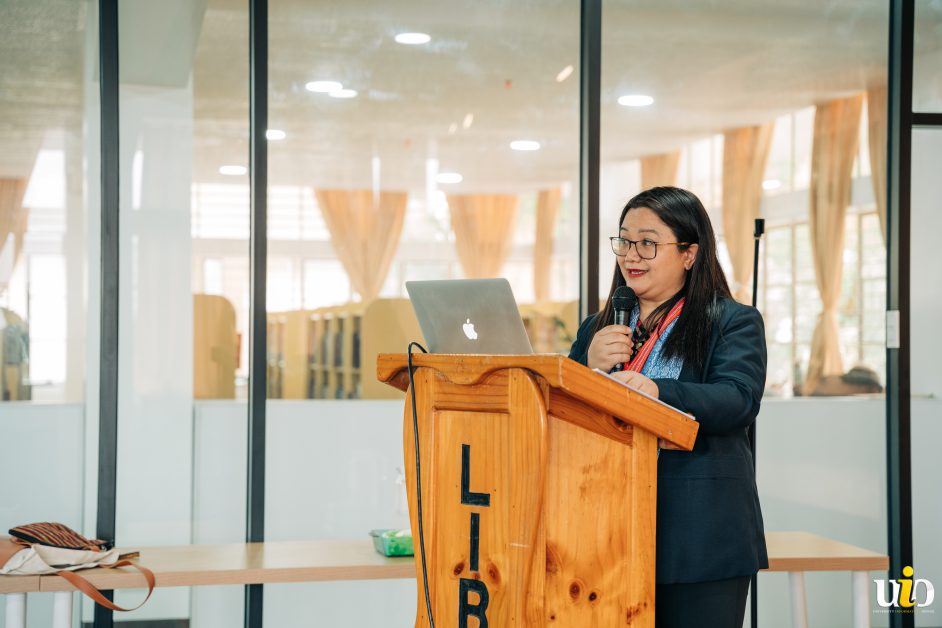
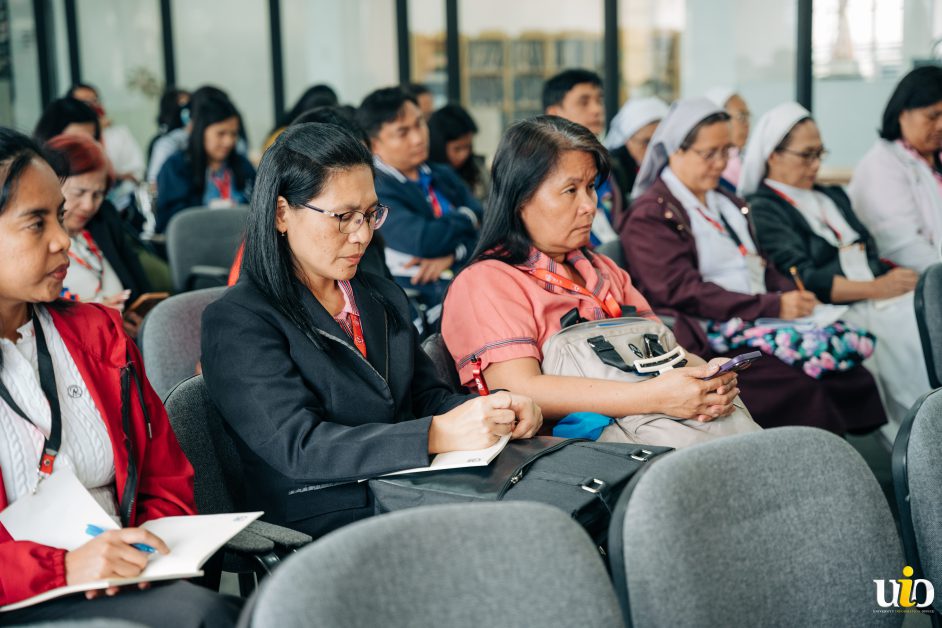
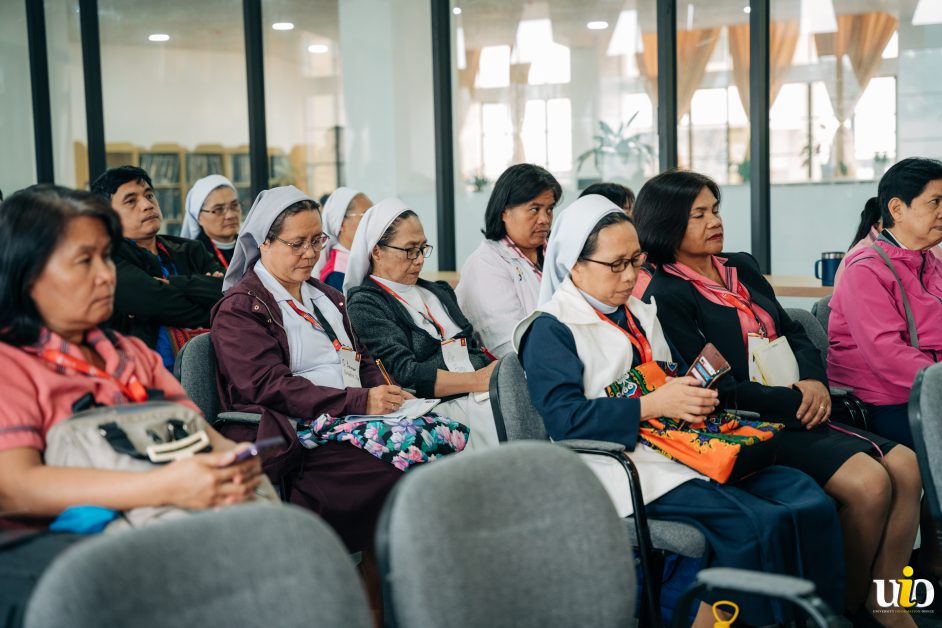
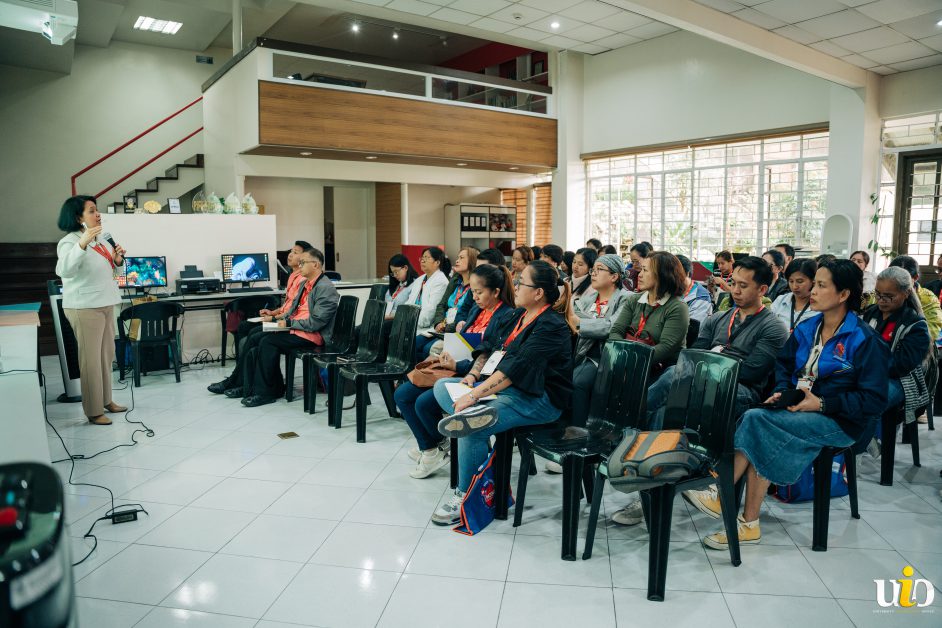
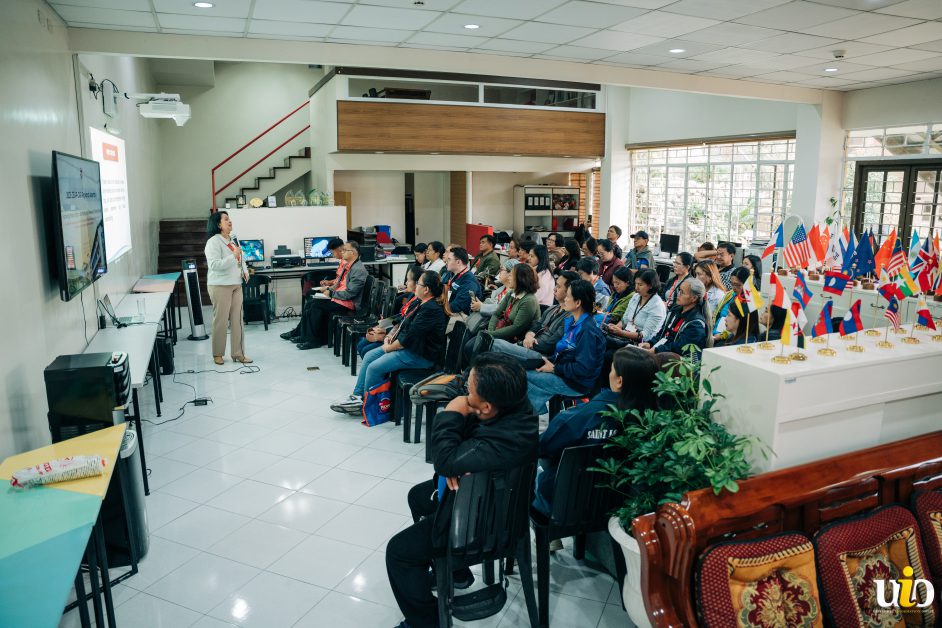
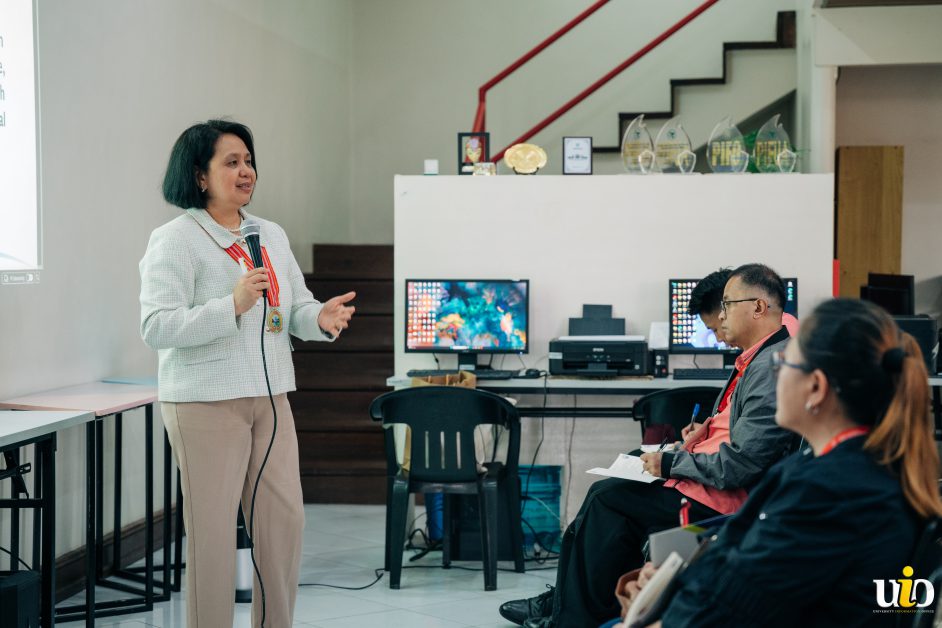
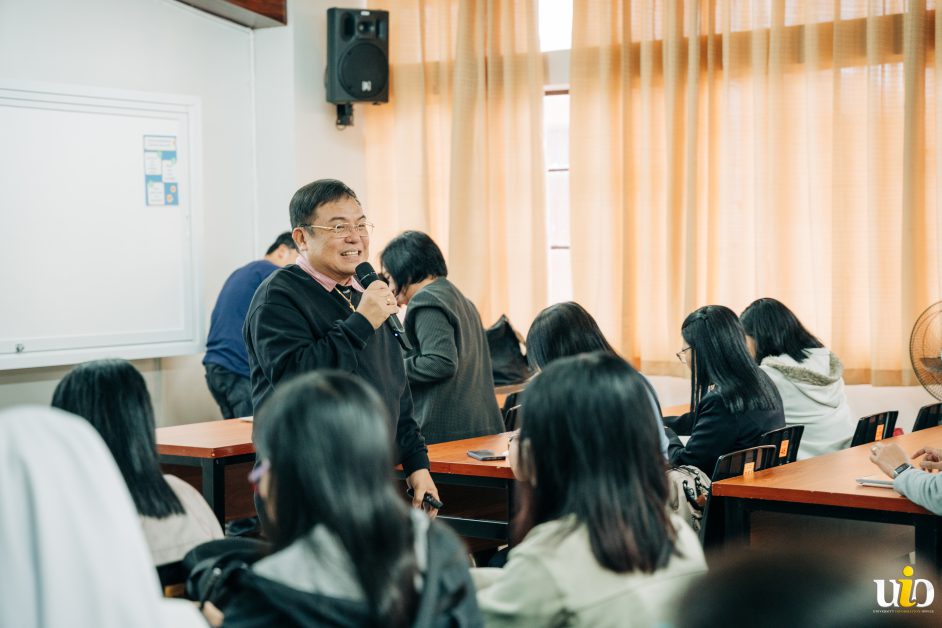
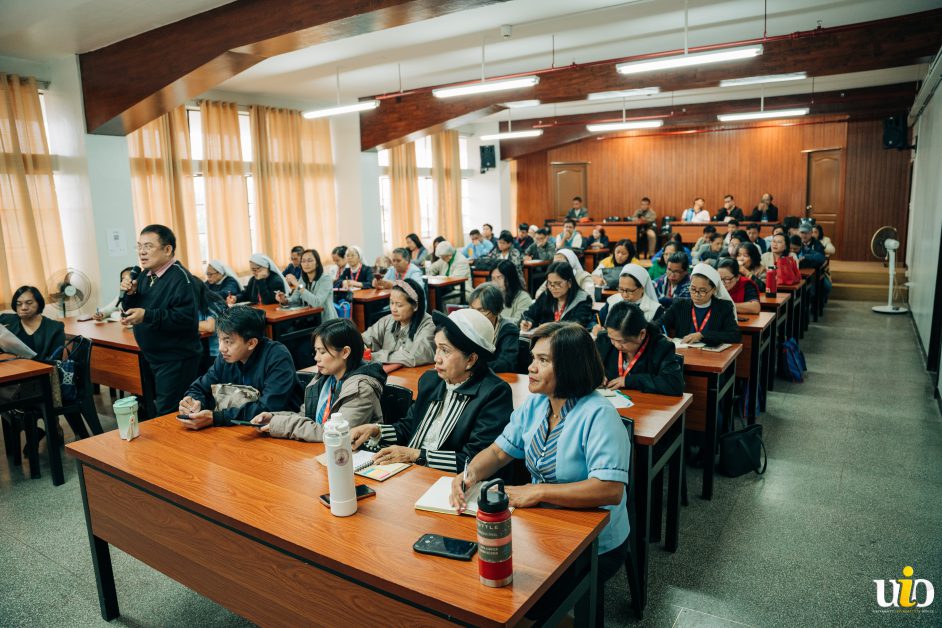
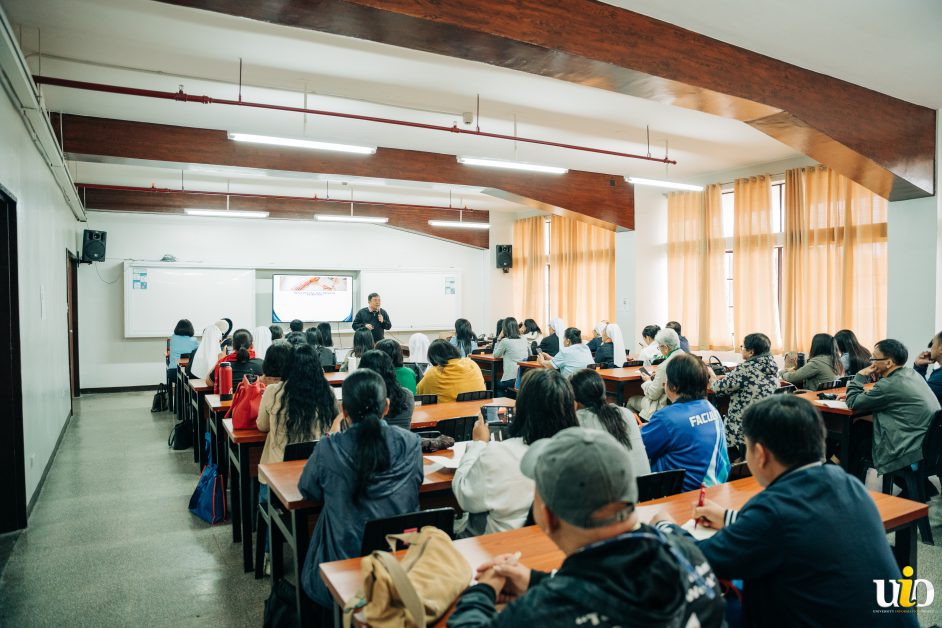
Day 2 Sessions:
- Administrators delved on institutionalizing learning recovery programs towards improved learning outcomes, led by Dr. Davalos;
- Teachers went in-depth on academic integrity, particularly in promoting uncheatable, meaningful learning in the AI Era, which was discussed by Dr. Velarde;
- Parents and Alumni focused on how to celebrate family traditions in faith in the AI Era, with the discussion facilitated by Philippe Jose S. Hernandez, LPT, MEng, Director, Communications Bureau, University of Santo Tomas;
- Student leaders had an engaging conversation on student leadership with faith and character formation, led by SLU University Registrar Andrew S. Macalma, PhD. The conversation included the planning of programs to be implemented per school, vicariate, or diocese and programs that would help and uplift their coadministrators, parents, teachers, students.
Each breakout session translated to a sharing of Insights by representatives of each sector: administrators, teachers, parents and alumni, and student leaders.
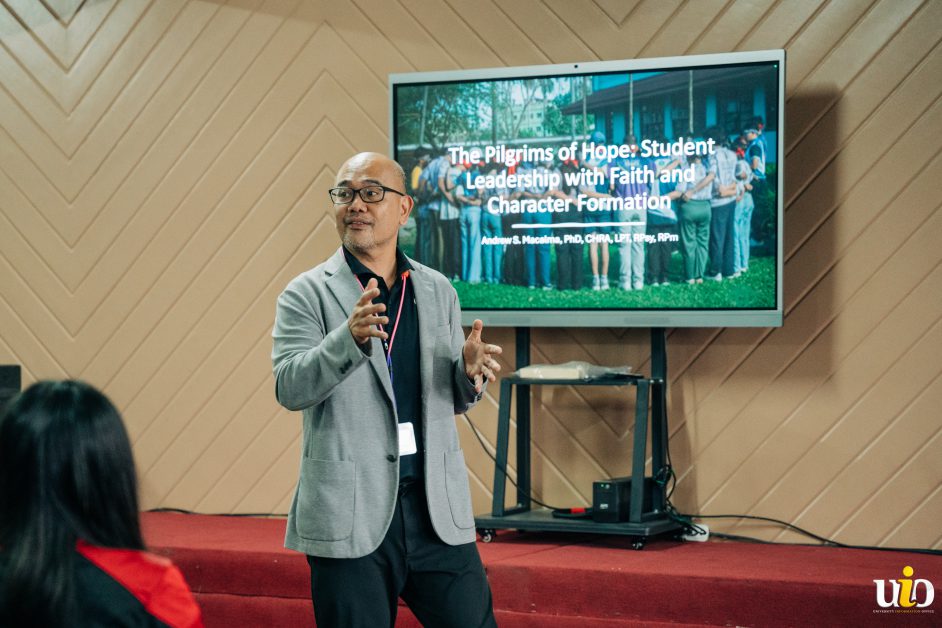
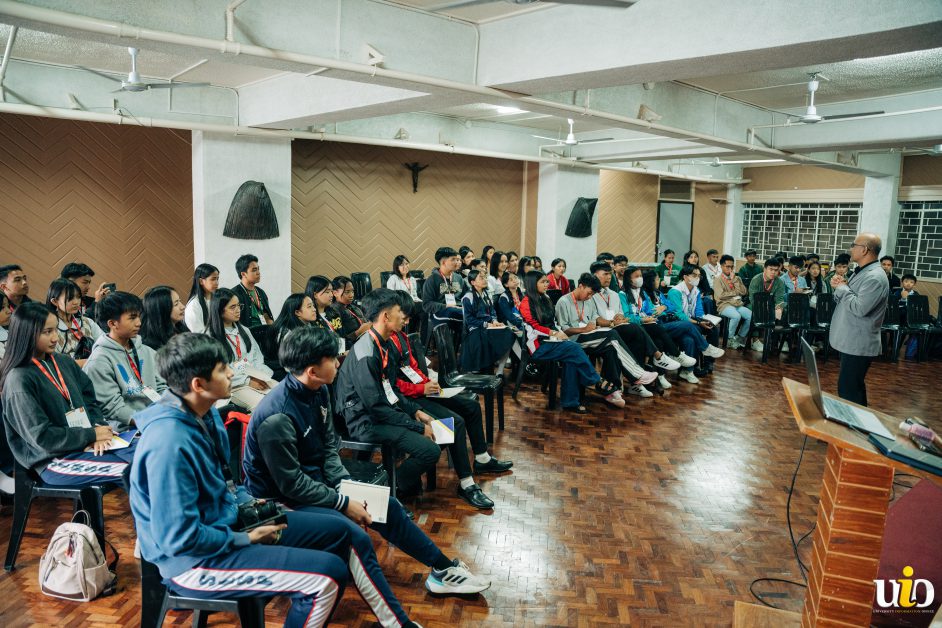
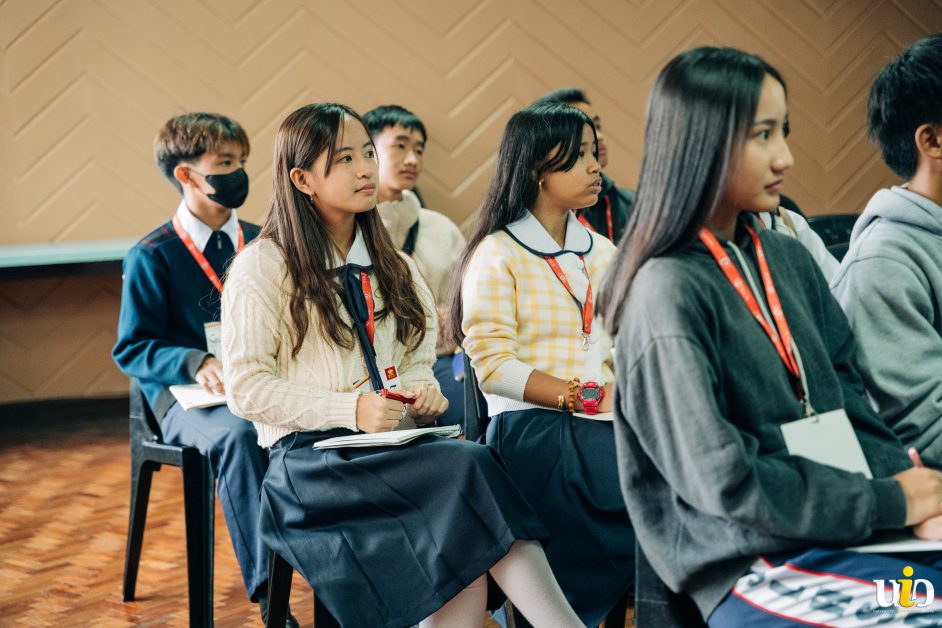
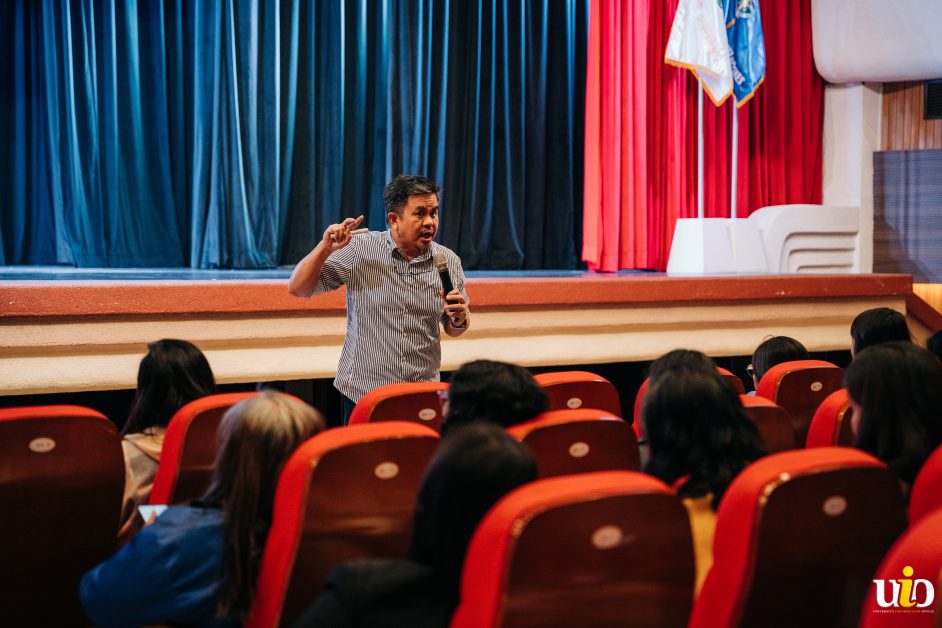
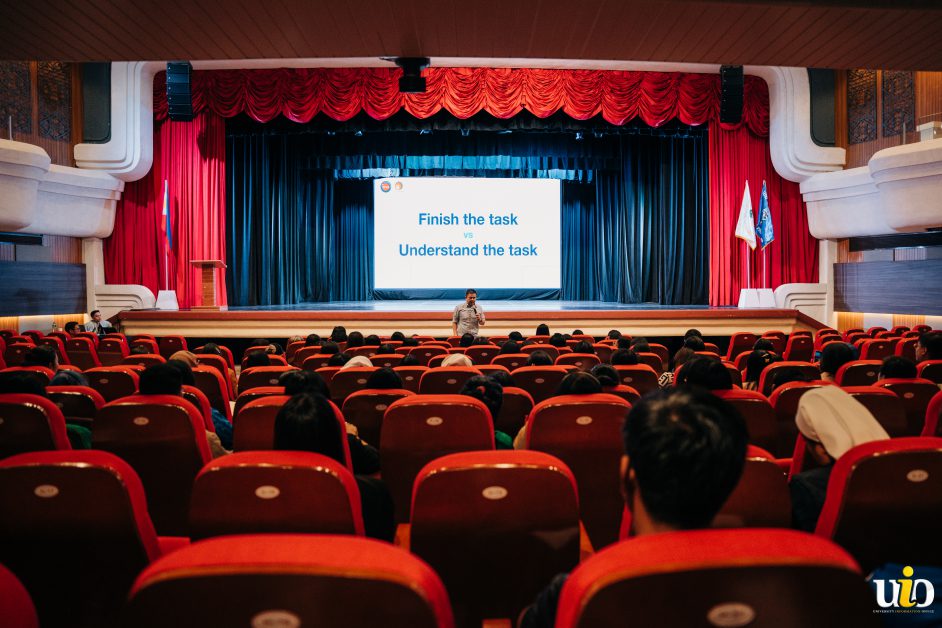
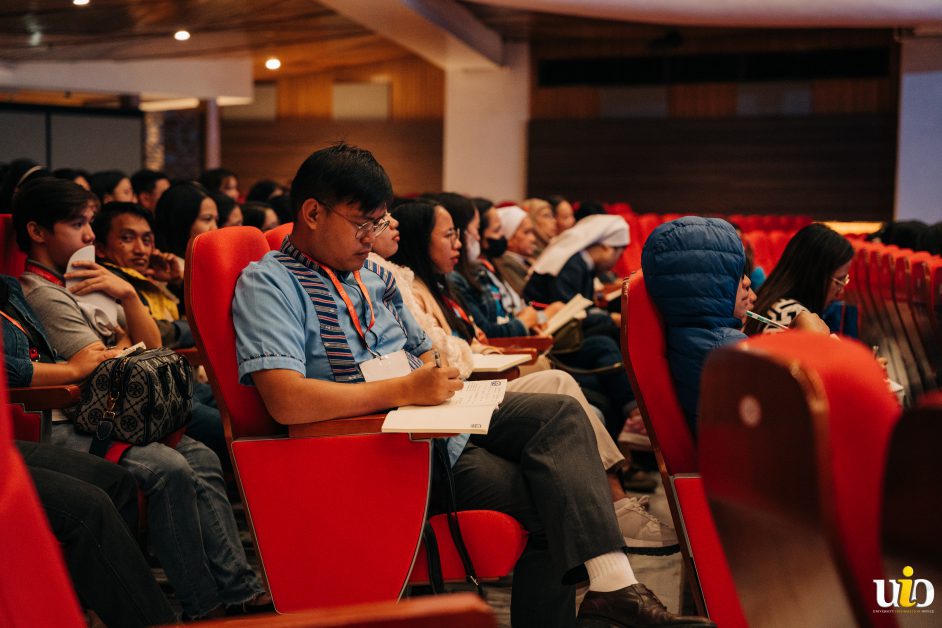
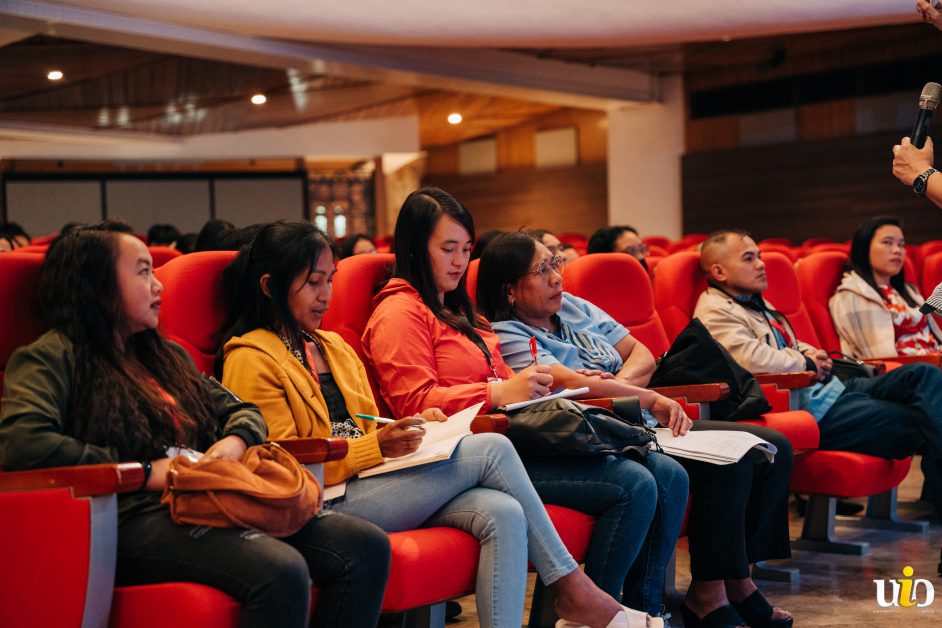
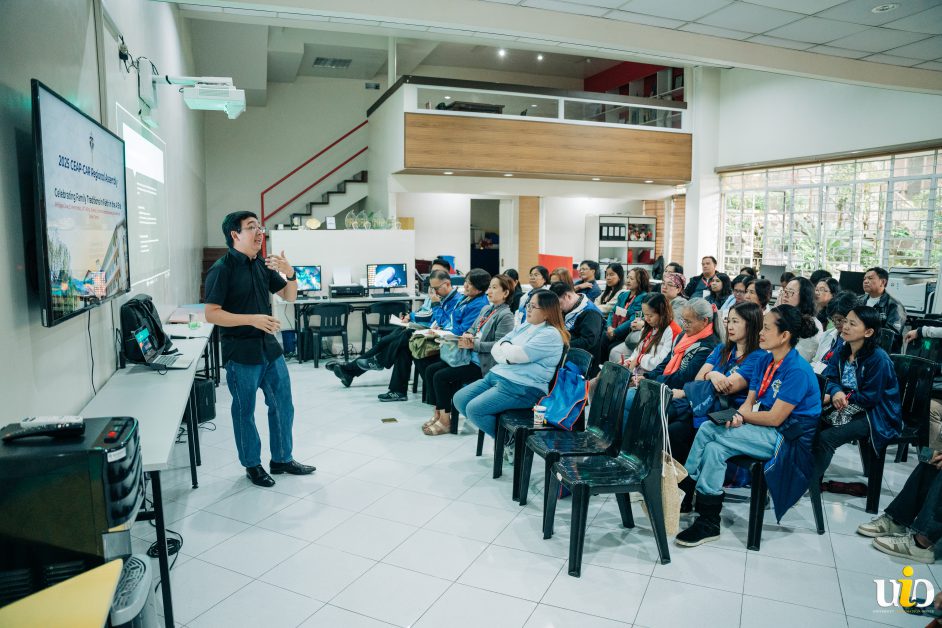
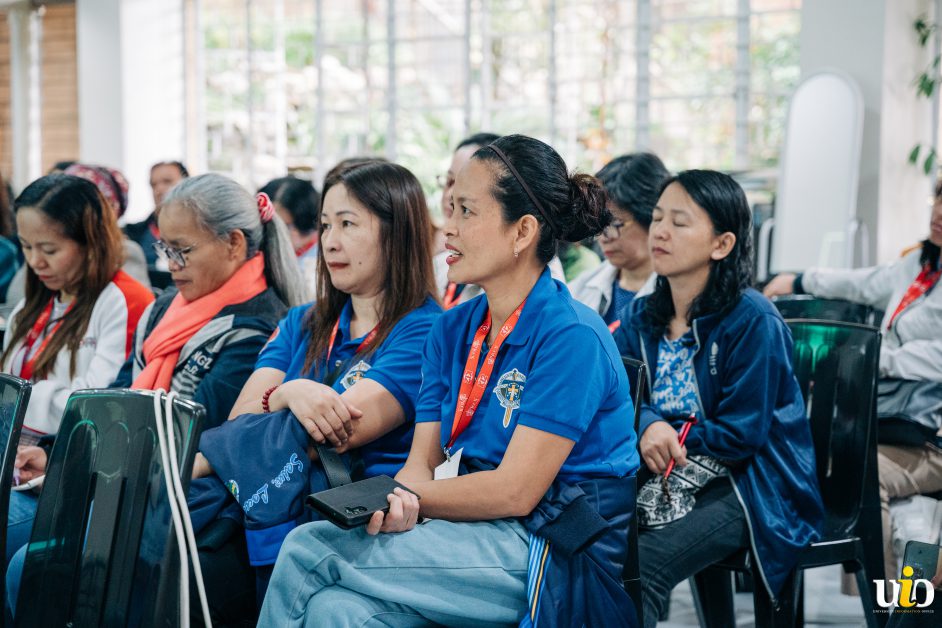
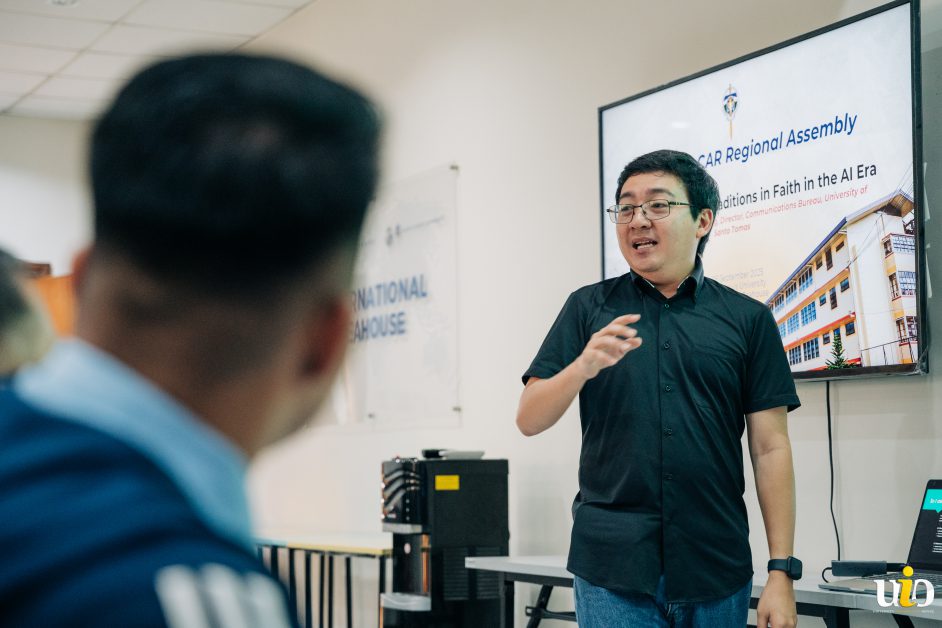
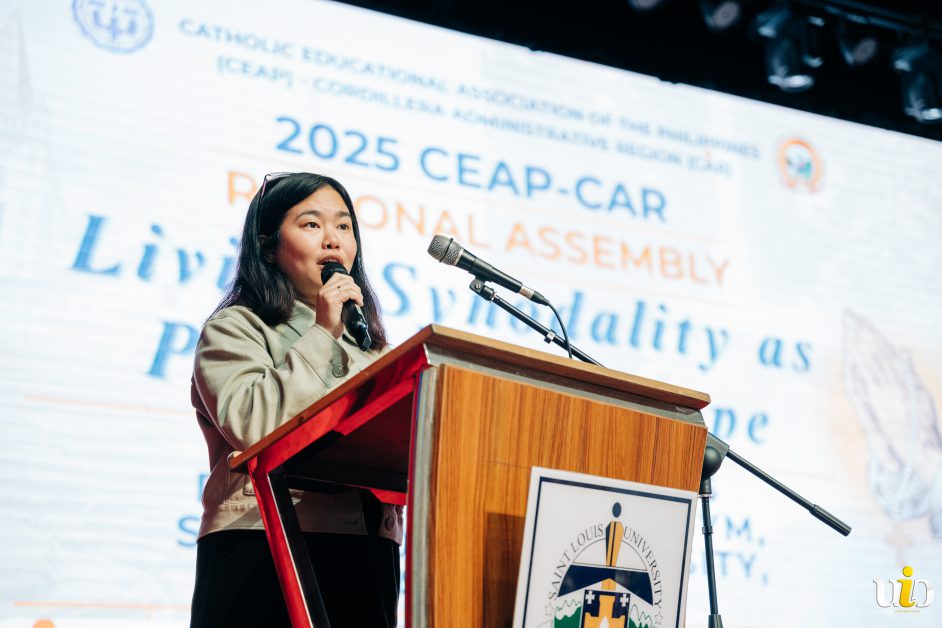
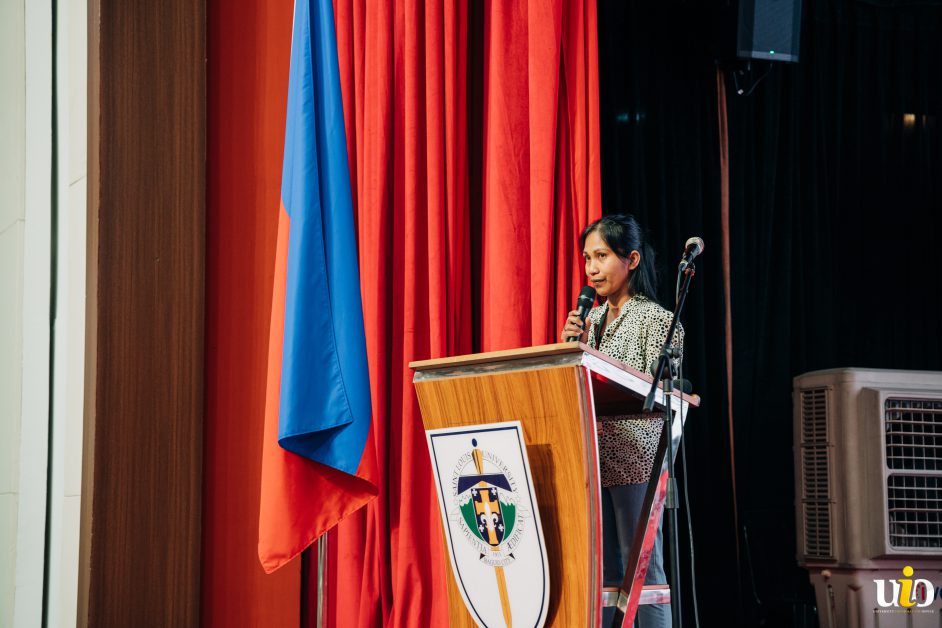
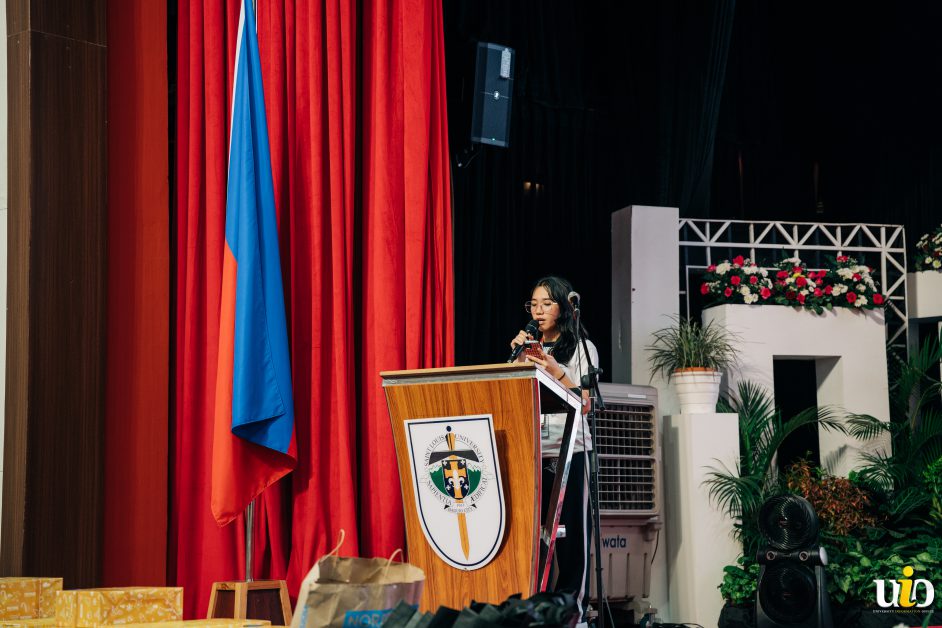
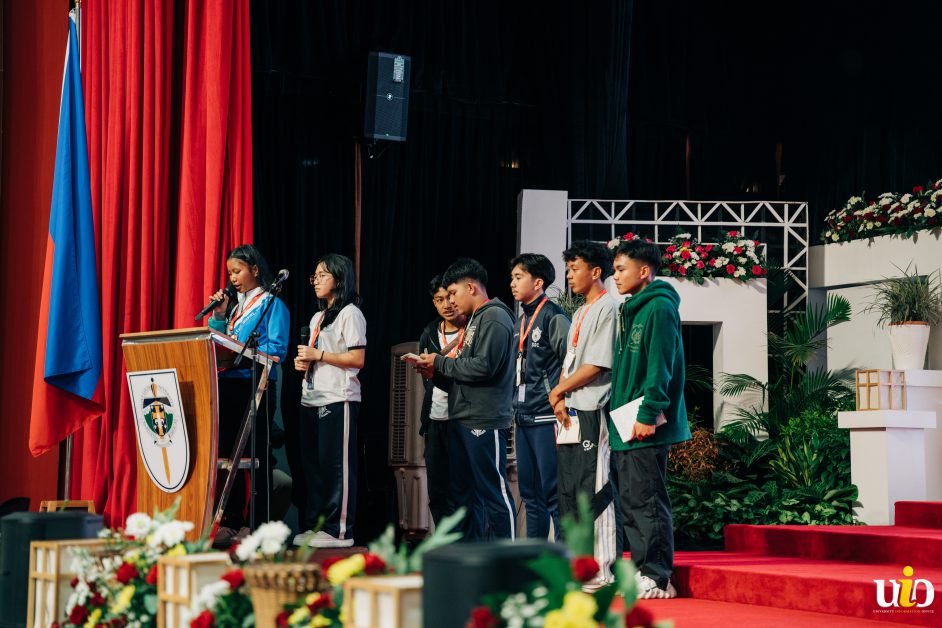
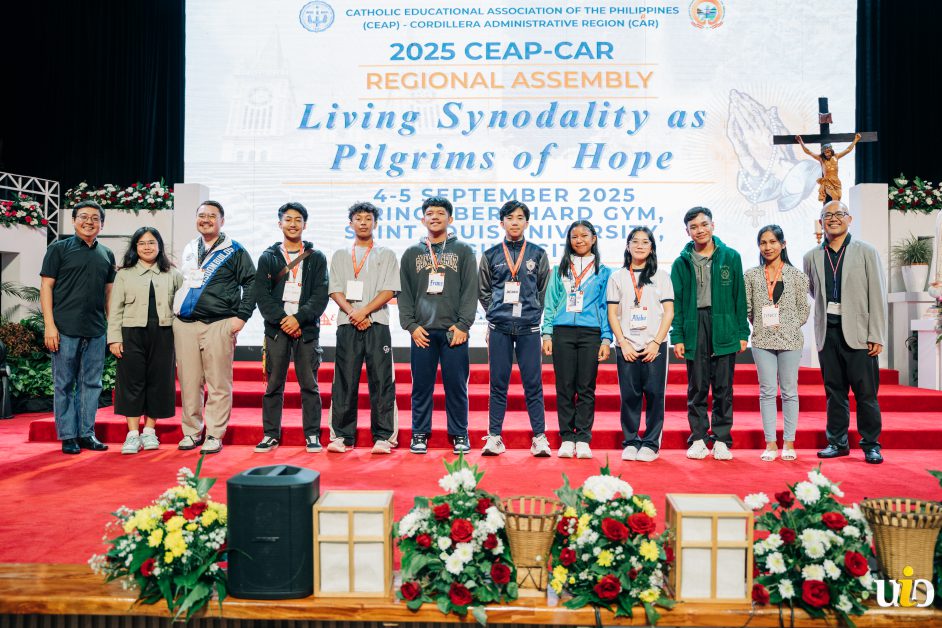
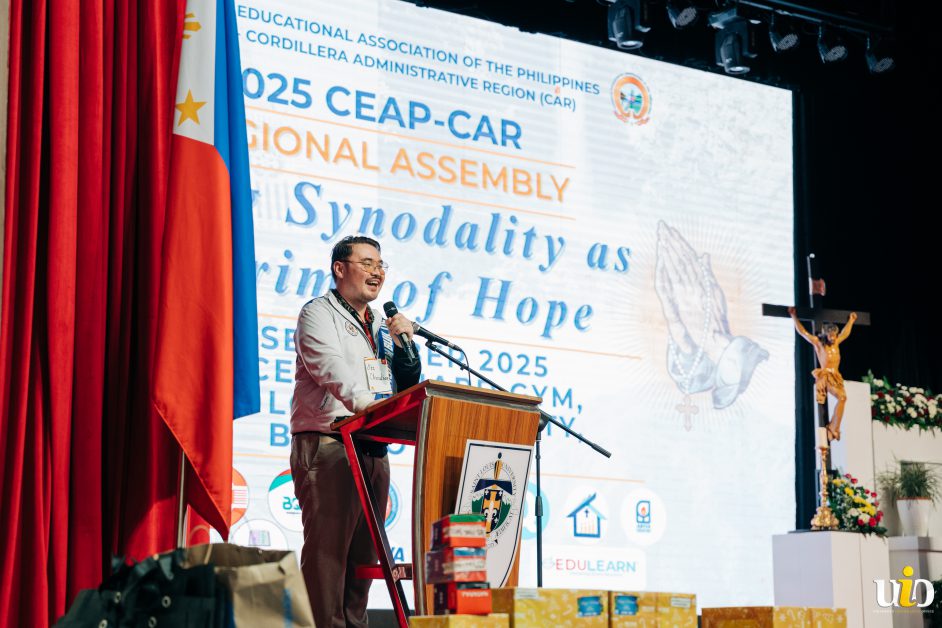
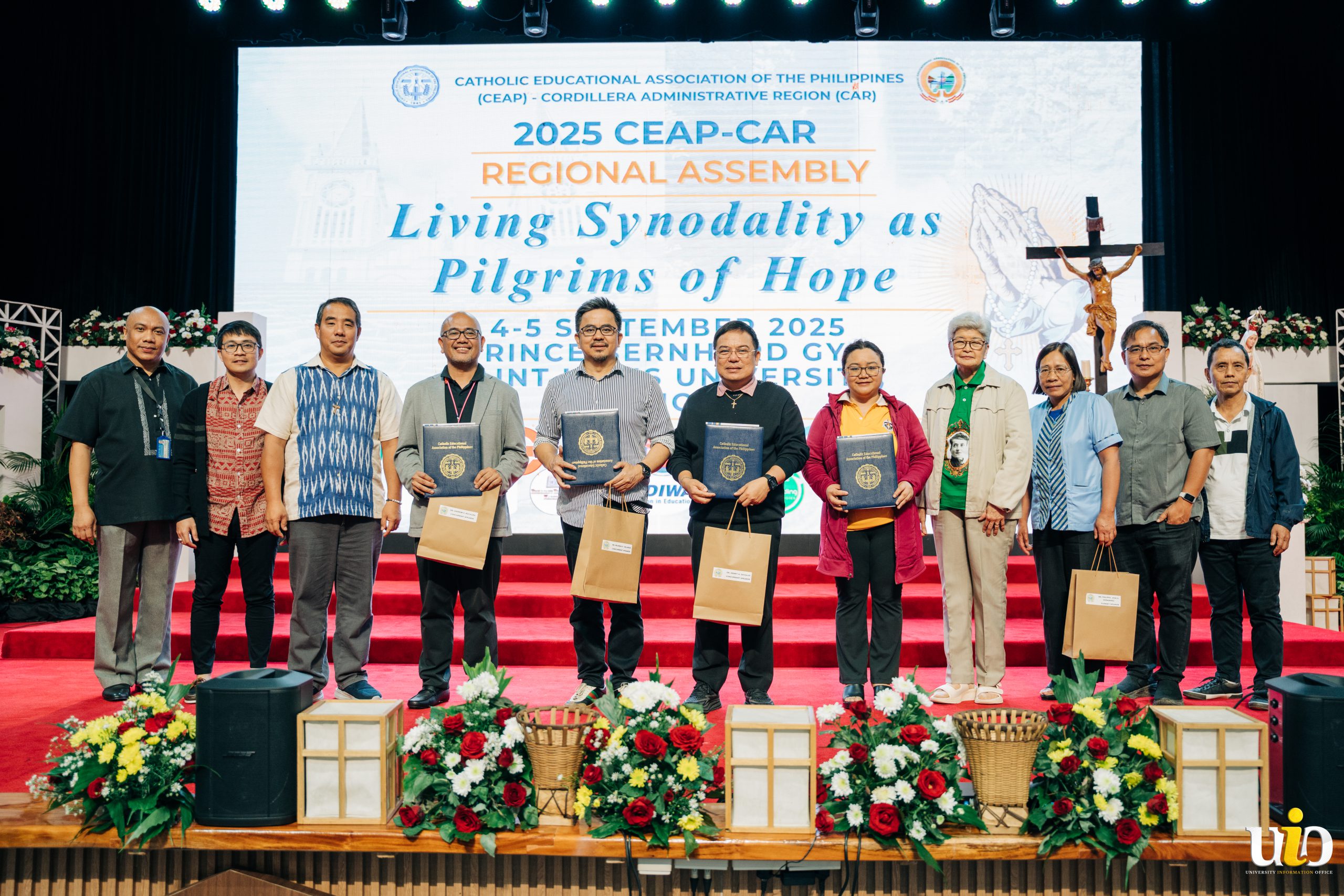
Plenary Talk 2: Institutionalizing Wellness in Mission Schools
Day two of the CEAP-CAR Regional Assembly emphasized wellness in schools, featuring a plenary talk titled “Institutionalizing Wellness in Schools: Our Shared Responsibility,” by Mr. Philippe Jose S. Hernandez, Director of the Communications Bureau at the University of Santo Tomas.
Mr. Hernandez began by saying, “Be a source of joy for people and hopefully that joy radiates from within.” Along those lines, he discussed the importance of going back to basics in understanding the dimensions of wellness through the lens of people’s needs the way that the Maslow’s Hierarchy of Needs specifically laid out. He also reminded the assembly of reconsidering practices in school work-related messages, announcements, and submissions beyond school hours.
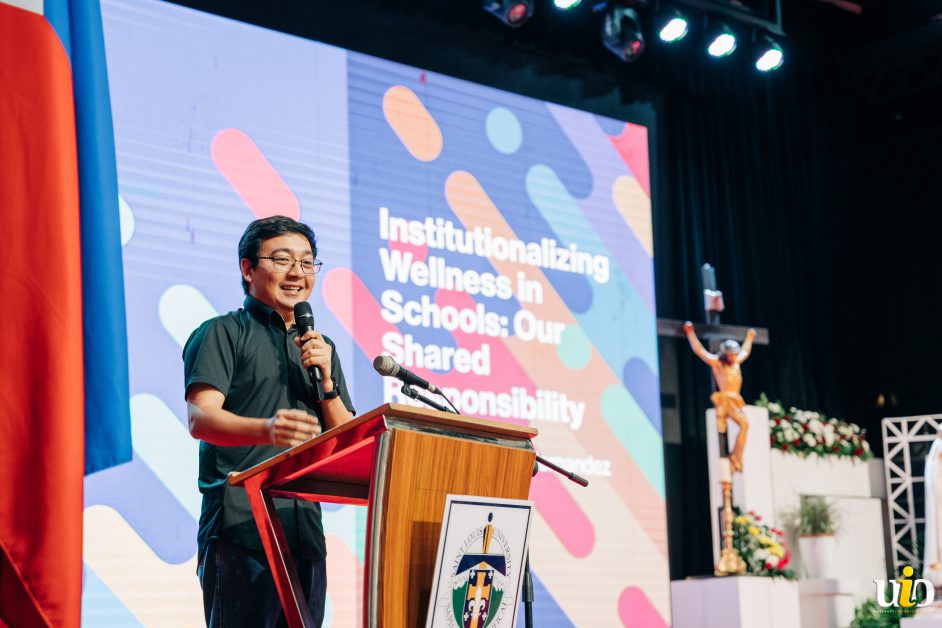
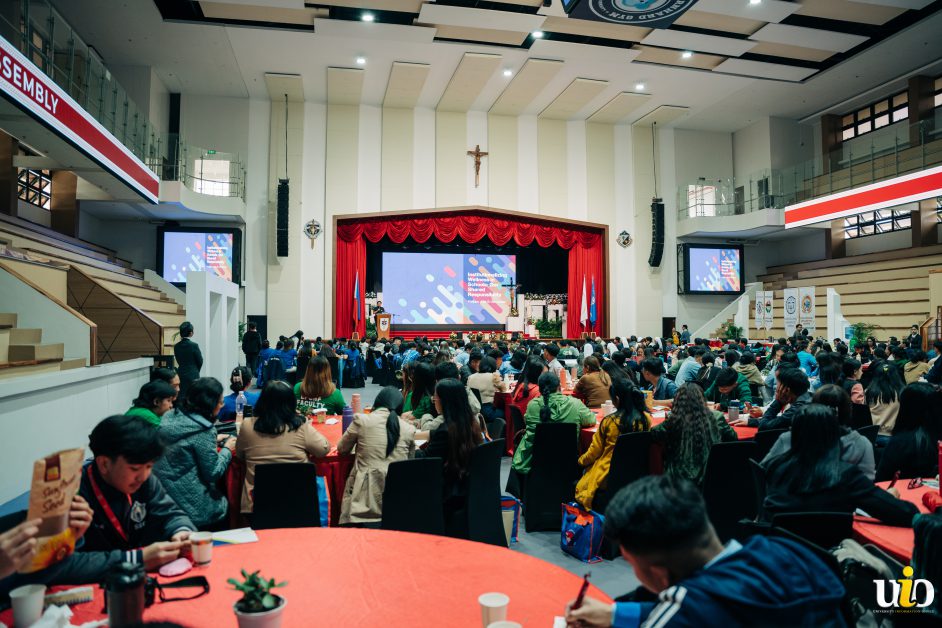
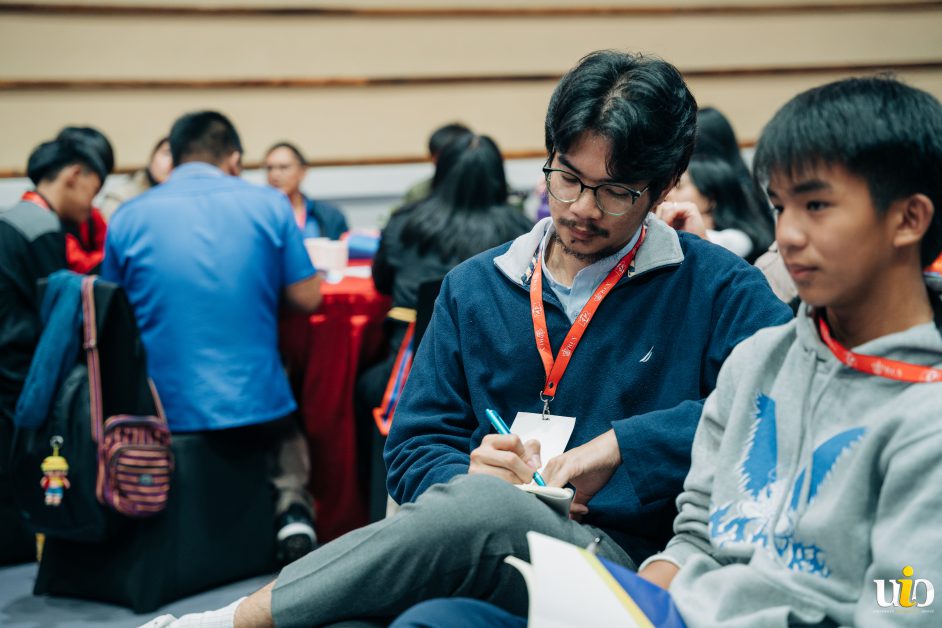
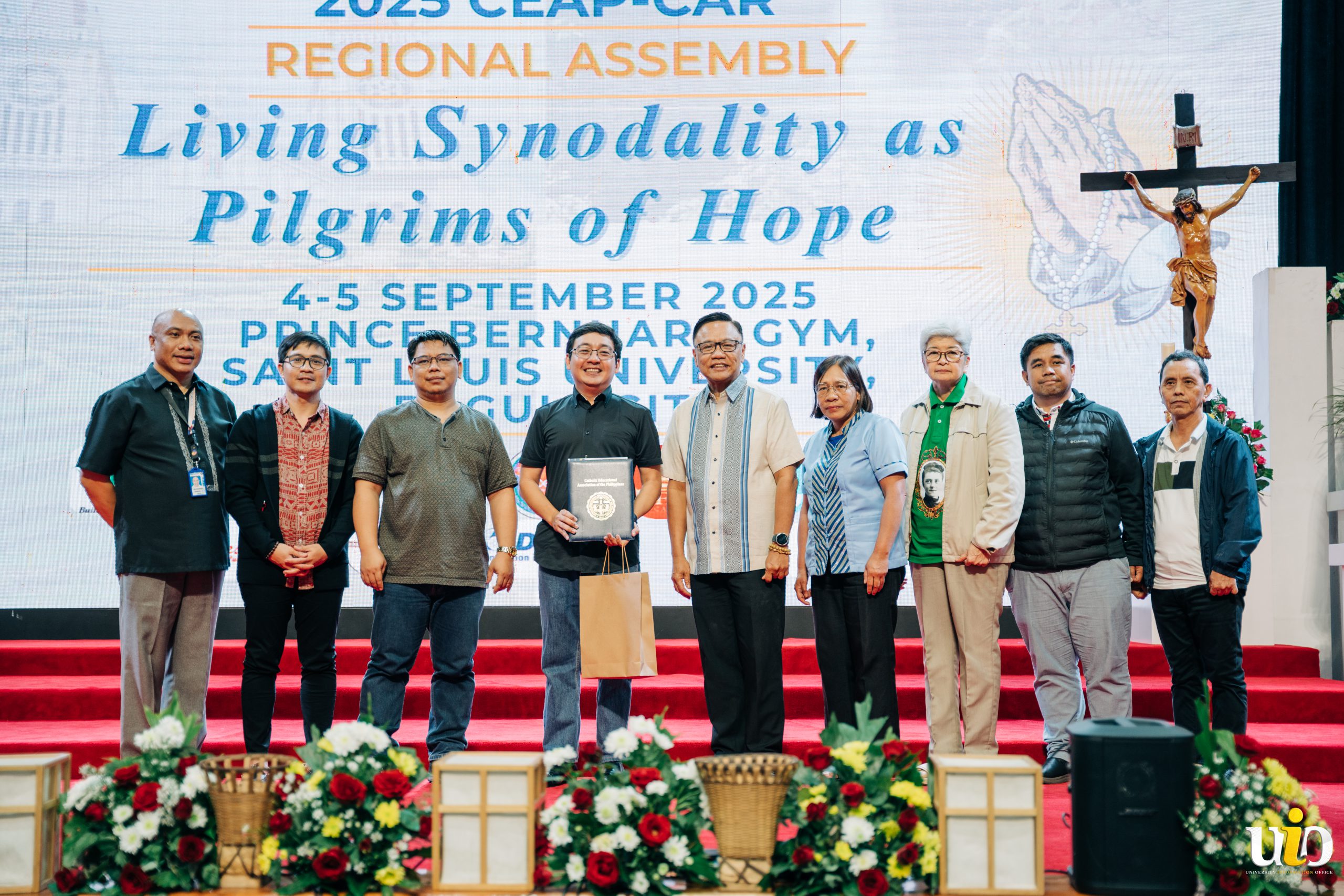
Further, the speaker emphasized how family support is essential, especially as emotions and gadgets take center stage in the times today. In the end, Mr. Hernandez said, “As we ground them (students) in doctrine and worship through our rituals and prayers which we must keep, let us give spaces for them to talk about, ask about, and grow in their faith.”
Looking forward through PEAC Updates on Private Schools
Updates from the Philippine Education Assistance Committee (PEAC) were shared by PEAC Executive Director Dr. Rhodora Angela F. Ferrer. Her report, “Operationalizing Public-Private Complementarity: Ways Forward,” tackled key updates and action plans:
- EDCOM 2 on Complementarity
- GASTPE Co-Implementation
- Quality Basic Education Development Plan
- Current PEAC Initiatives for Increased Support for Private Education (capacity building initiatives, quality assurance, research, and advocacy)
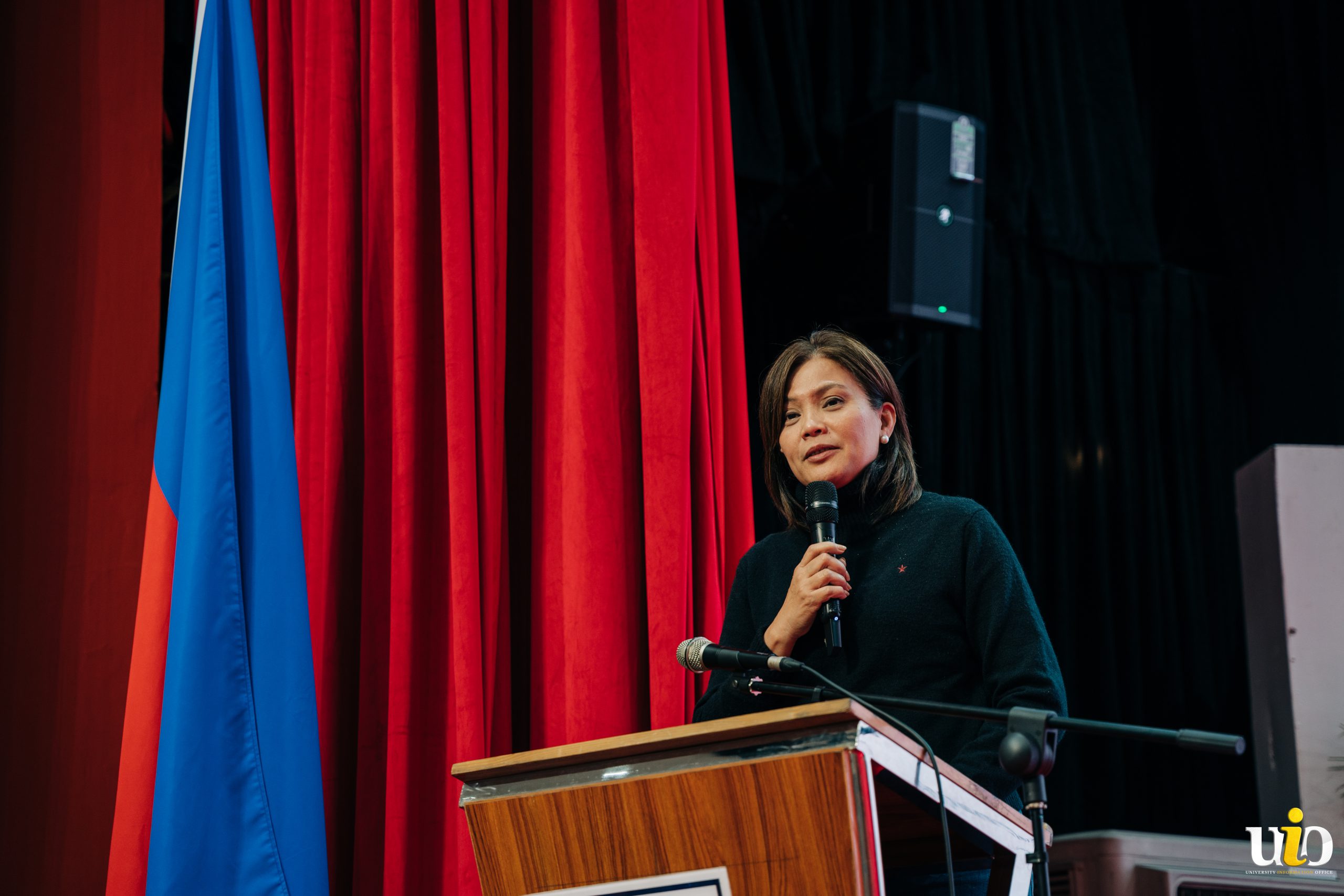
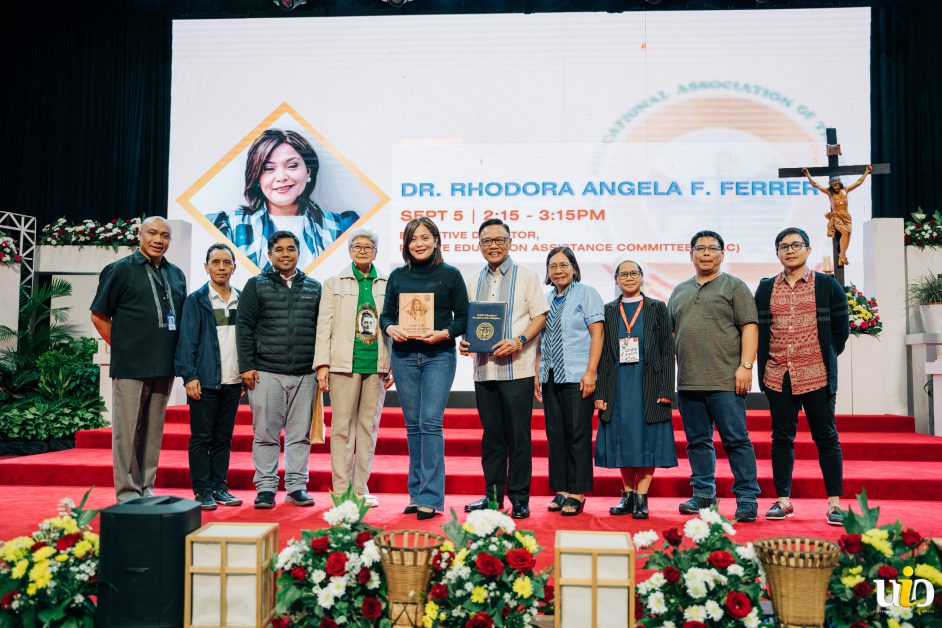
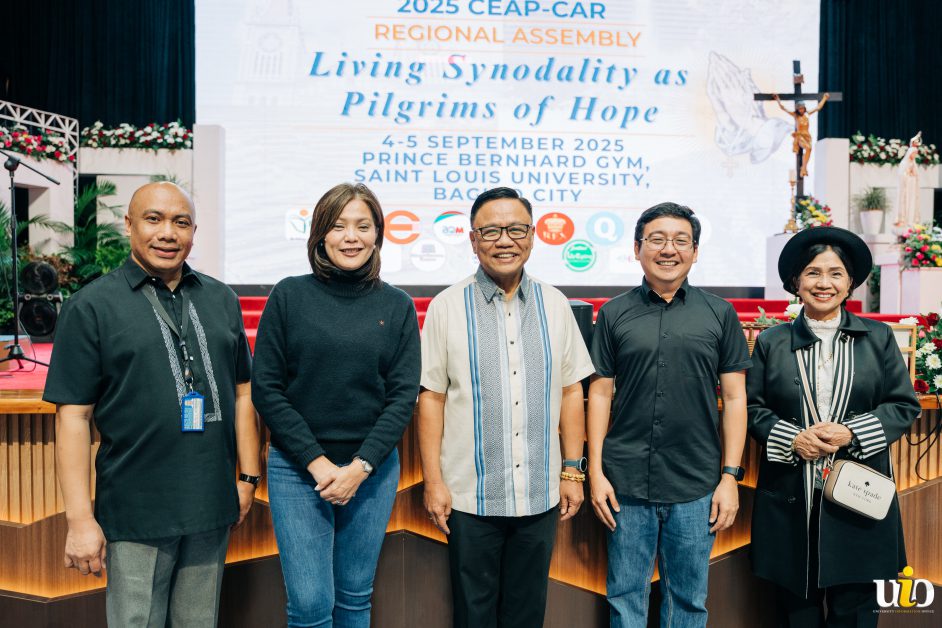
In highlighting key points from her report, Dr. Ferrer underscored consistently working towards quality education. “Your commitment to quality education is your commitment to your own institution and your commitment to God,” she said.
CEAP CAR Regional Trustee’s Report
As CEAP-CAR Regional Trustee, Rev. Fr. Sales presented the meaningful and transformative programs from the period January to August 2025 that deepened the mission of Catholic Education institutions. The report highlighted the collective accomplishments and renewed direction of CEAP CAR, particularly the Three-Year Strategic Plan (2025-2028) that was crafted with the input and discernment of the member-schools.
The said plan focused on three major Key Performance Indicators (KPIs): Academic Excellence, Faith and Spiritual Formation and Integration, and Compassion and Community Engagement. Among the initiatives to be launched in line with the KPIs are online learning sessions, enhanced faith formation contextualized to the Cordillera culture through Justice and Peace, Engaged Citizenship, Ecological Integrity, Poverty Reduction, Gender Equality, and Youth Empowerment (JEEPGY) Modules, and strengthening of leadership capacity across school levels, among others. Another highlight is the rollout of the CEAP-CAR Leadership Academy, a region-wide formation program for school leaders.
Rev. Fr. Sales said, “Together as one CEAP-CAR family, let us continue to nurture a synodal spirit in our schools and communities, with faith as our compass, and hope as our banner.”
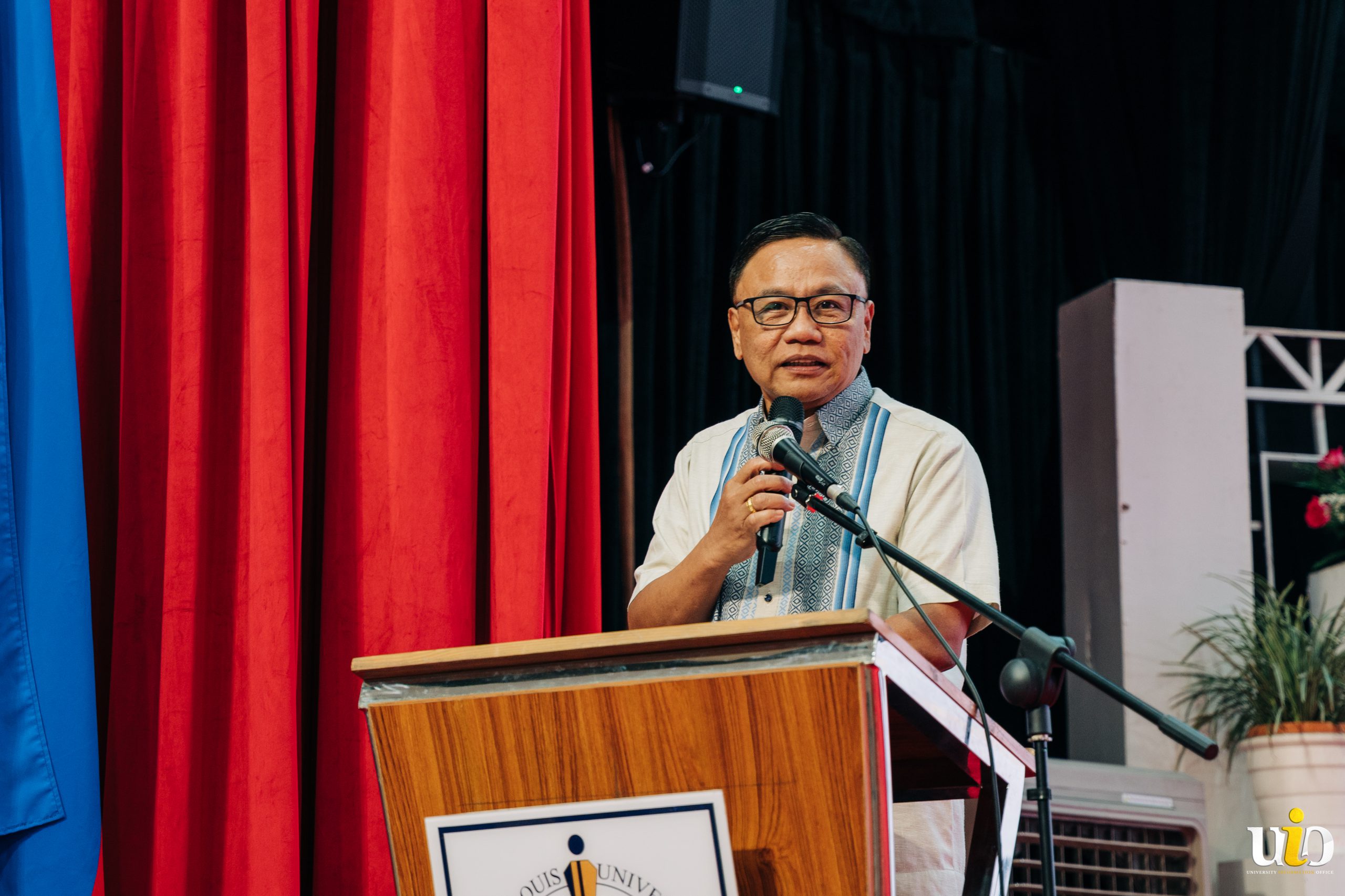
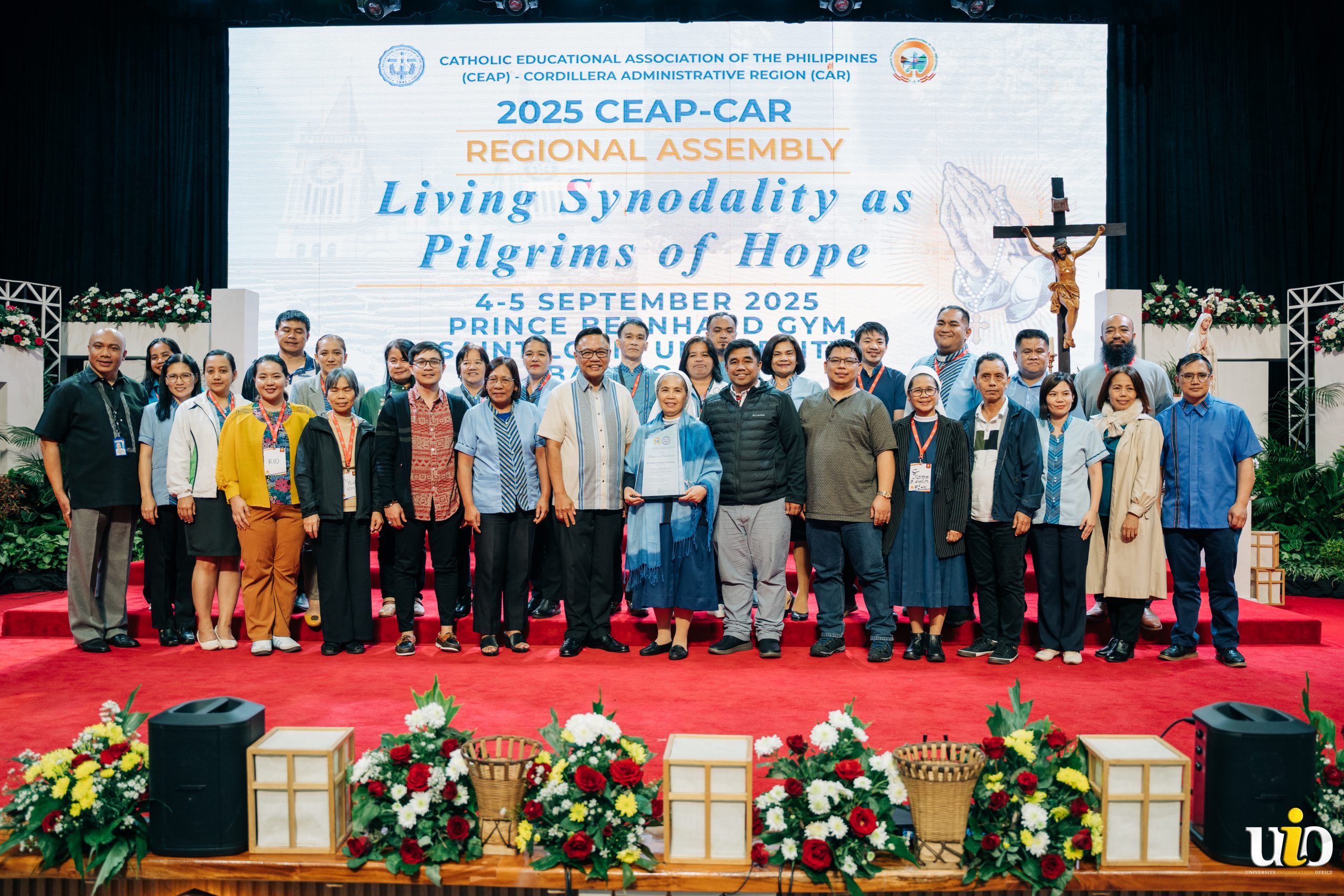
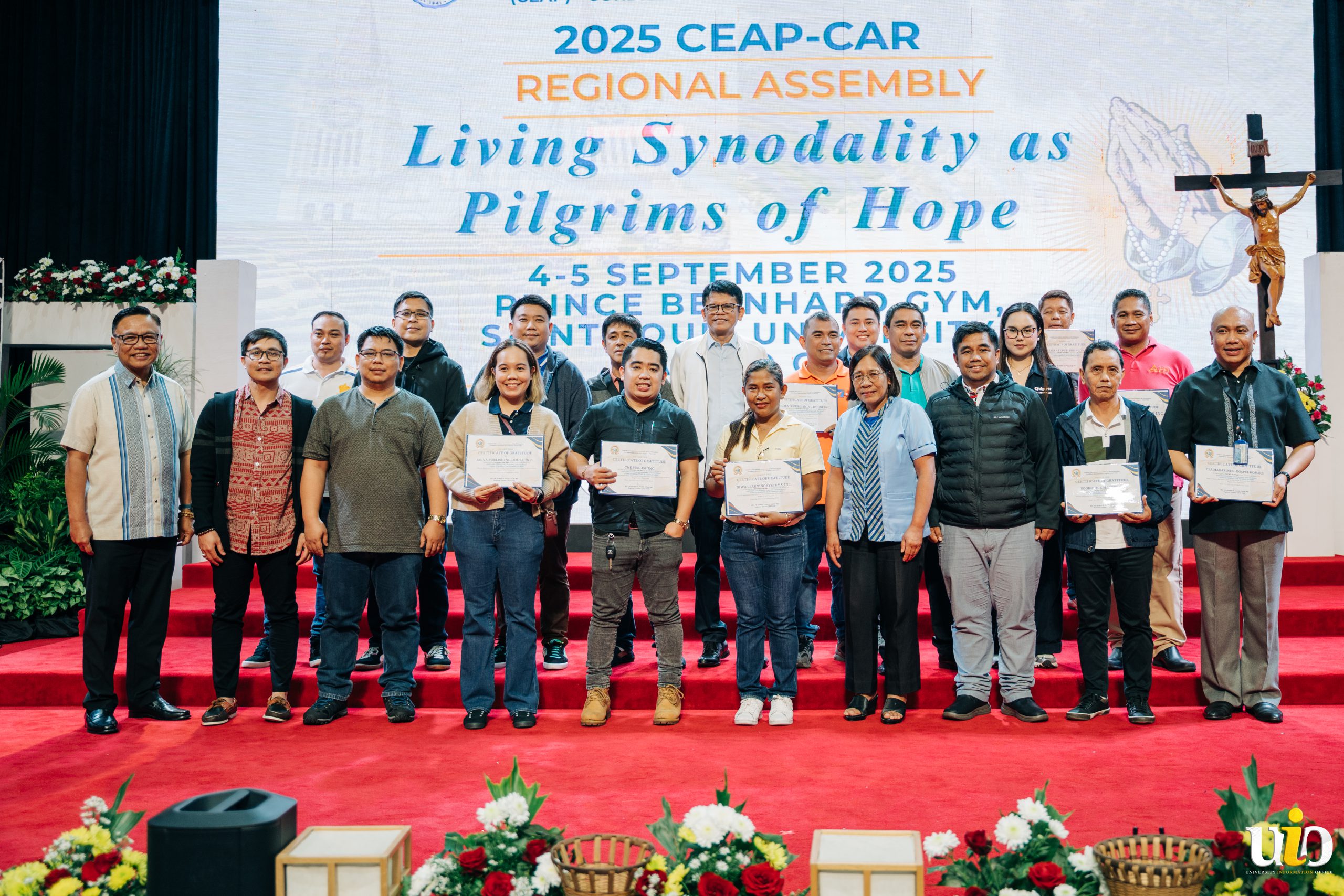
CEAP-CAR 2025 strengthens faith and community kinship
The closing Eucharistic celebration co-celebrated by Rev. Fr. Gilbert B. Sales, CICM, PhD, and the CEAP-CAR Fathers brought the assembly to a prayerful conclusion.
Putting the assembly to a close, cultural presentations took the spotlight reflecting the rich heritage and faith of the CEAP-CAR community.
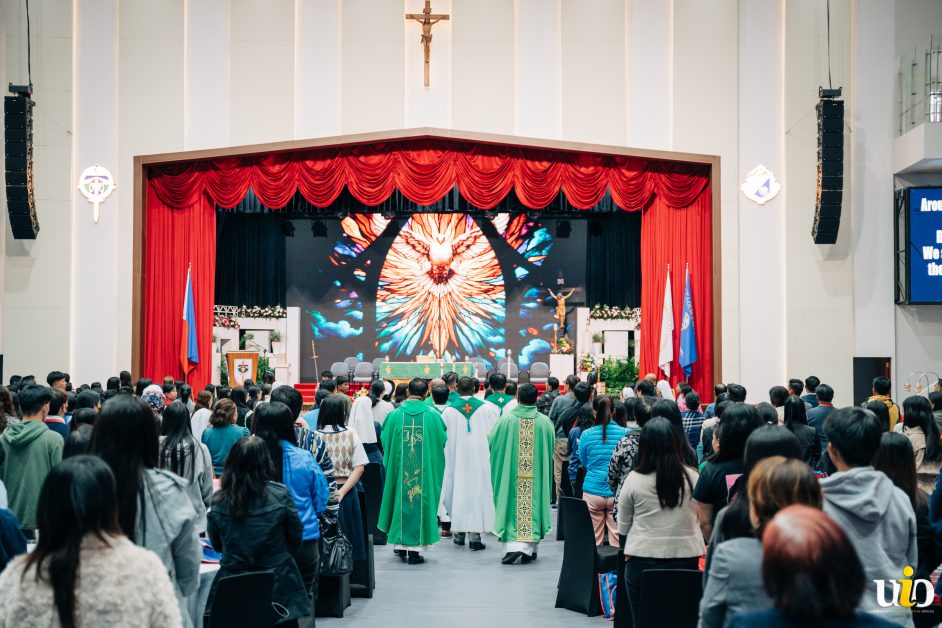
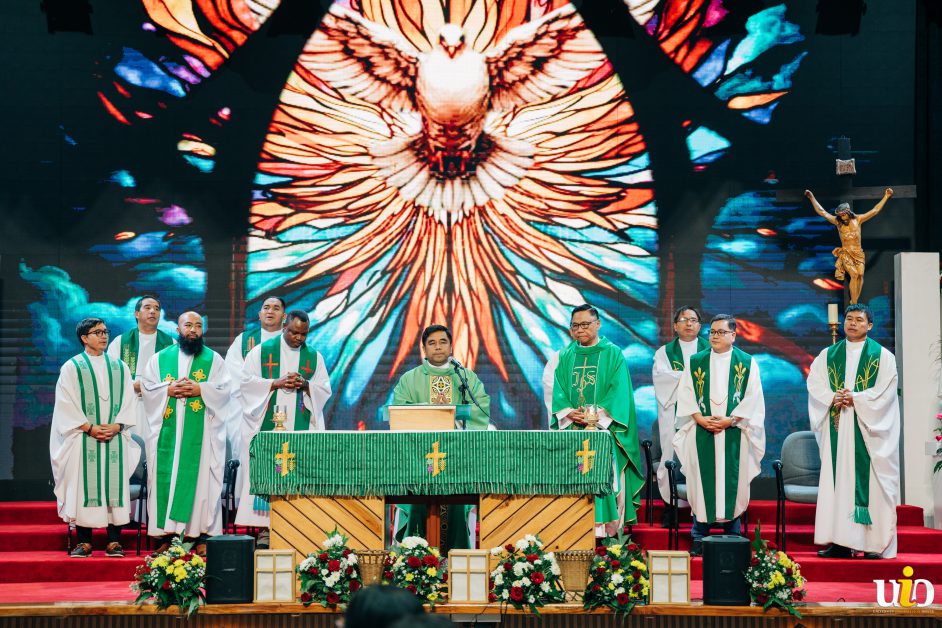
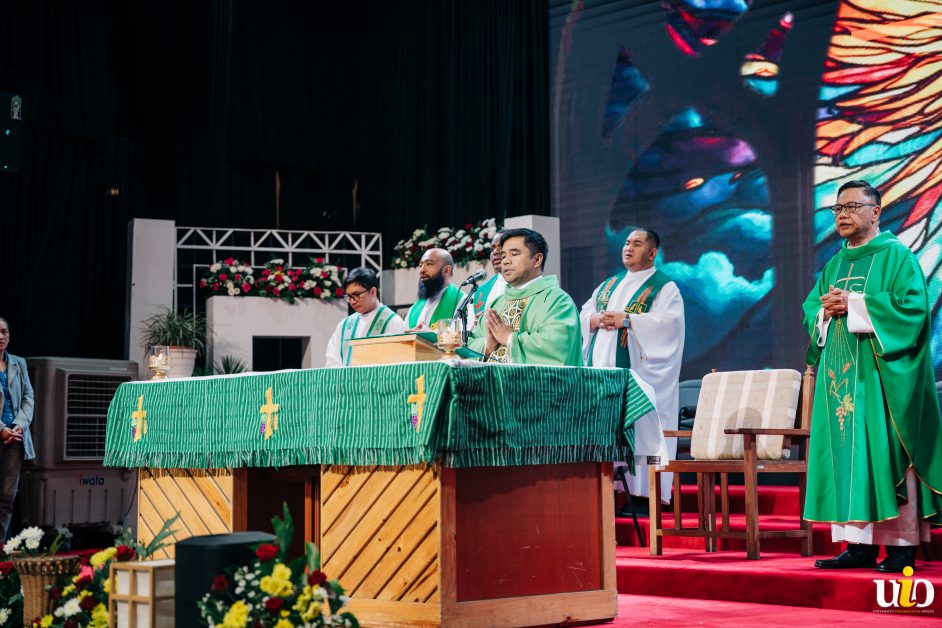
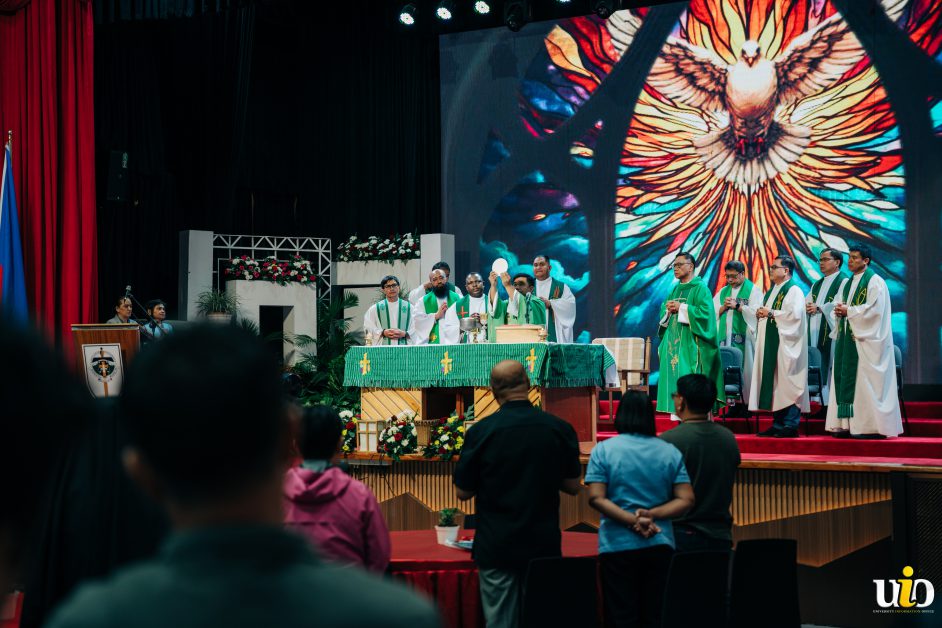
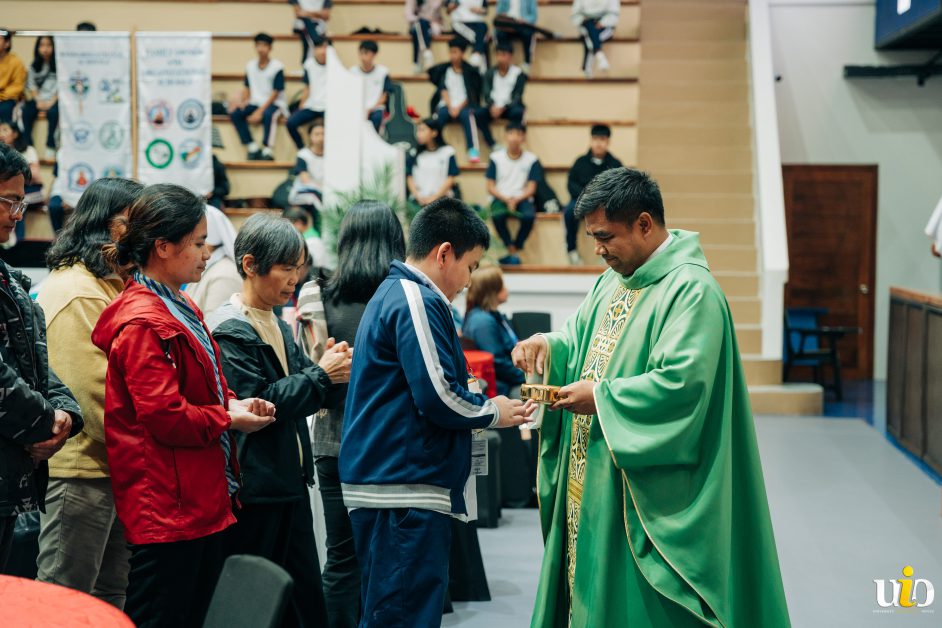
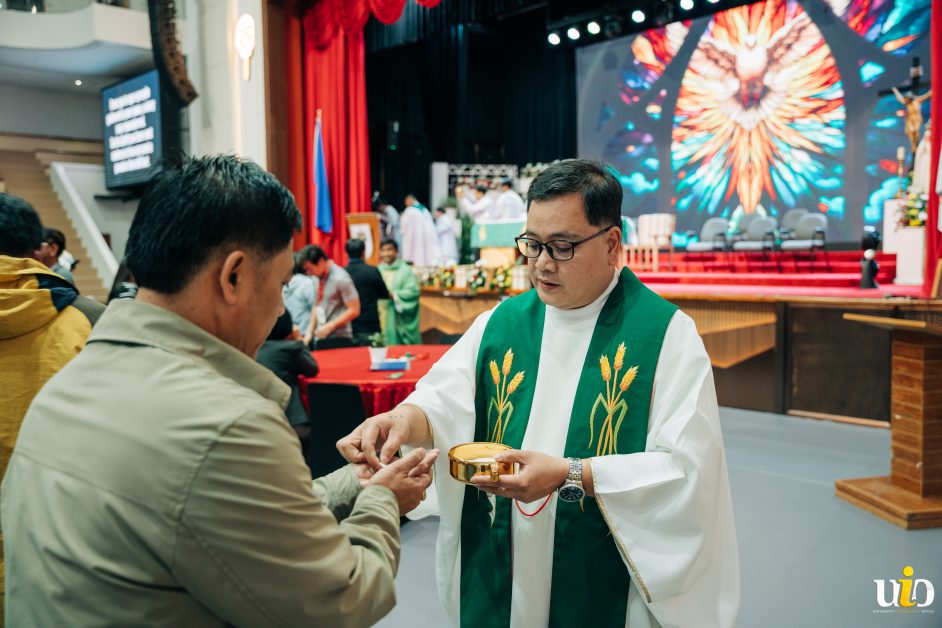
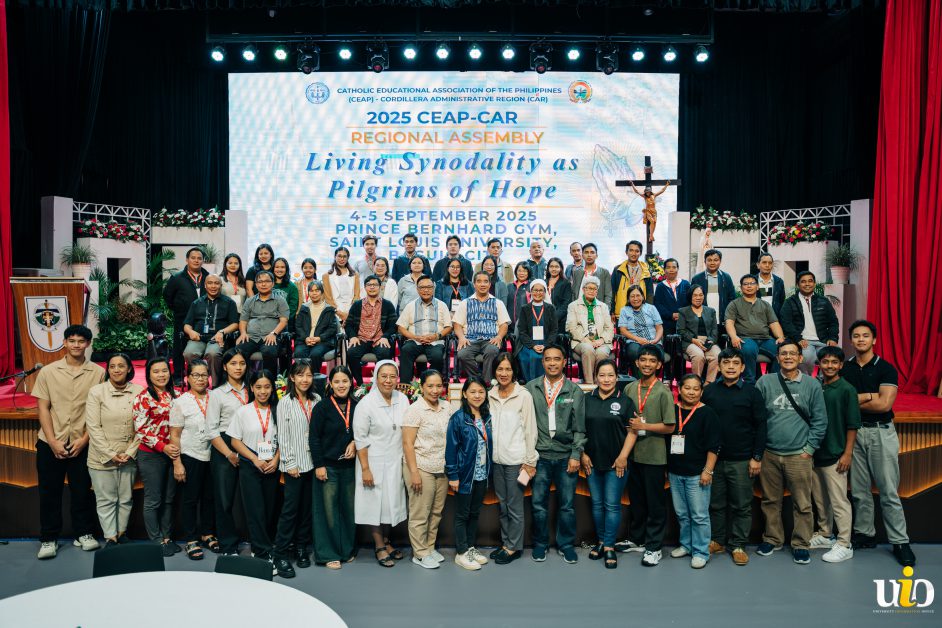
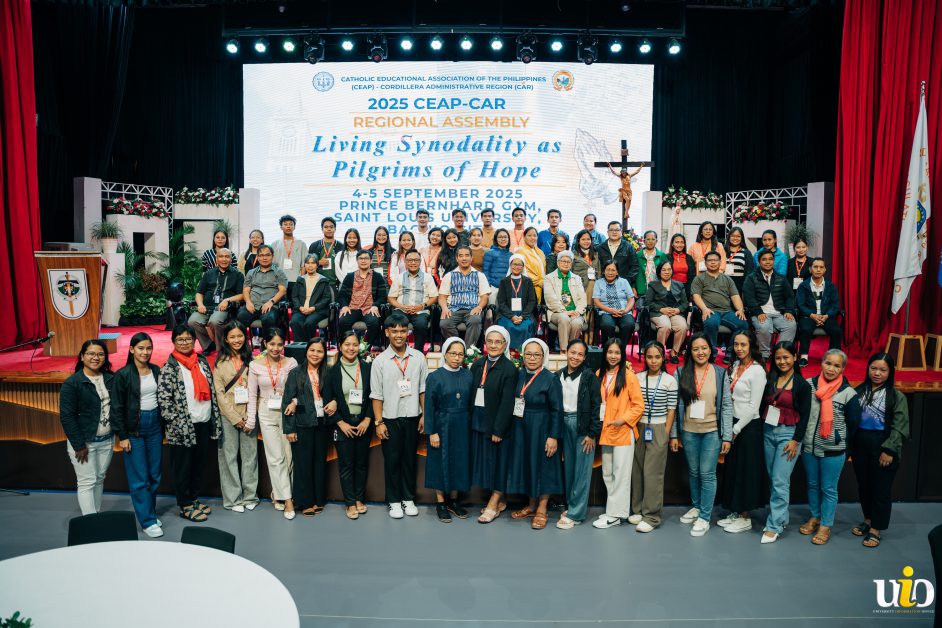
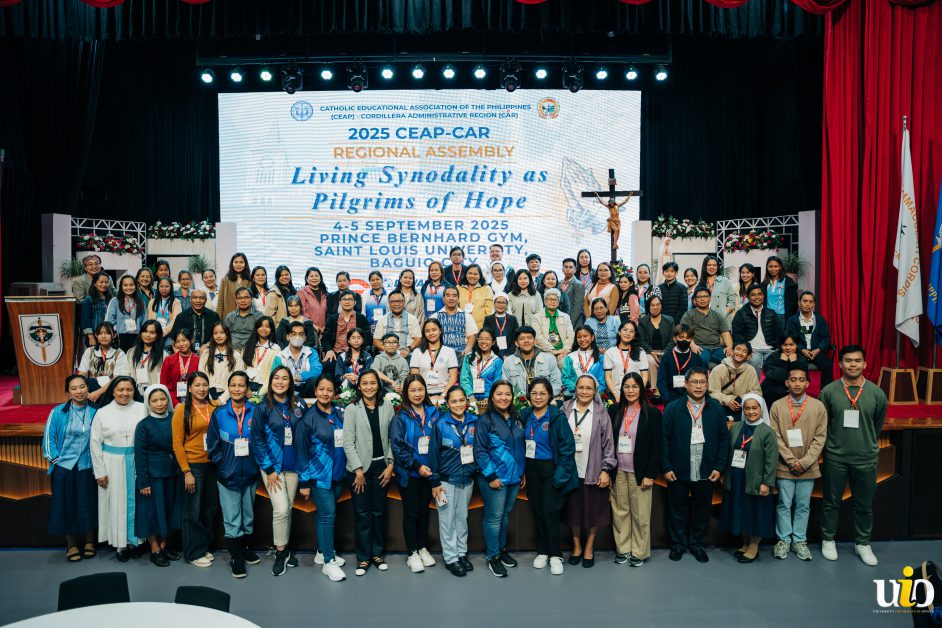
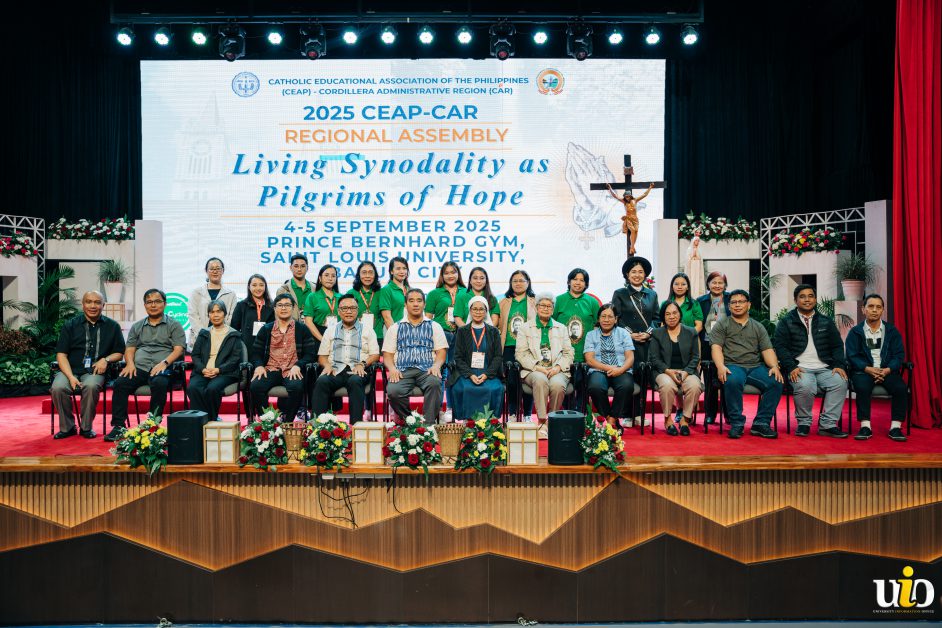
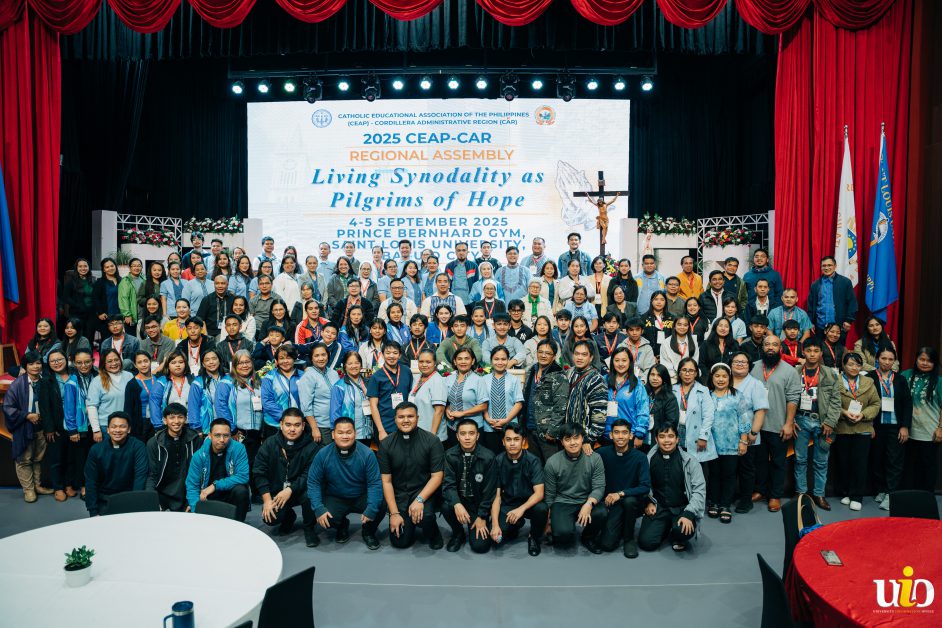
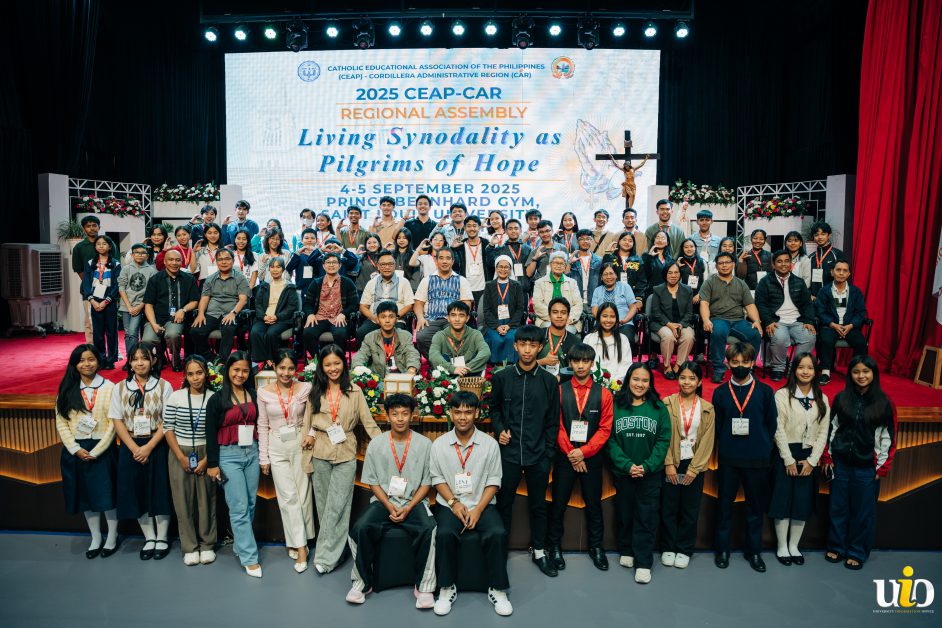
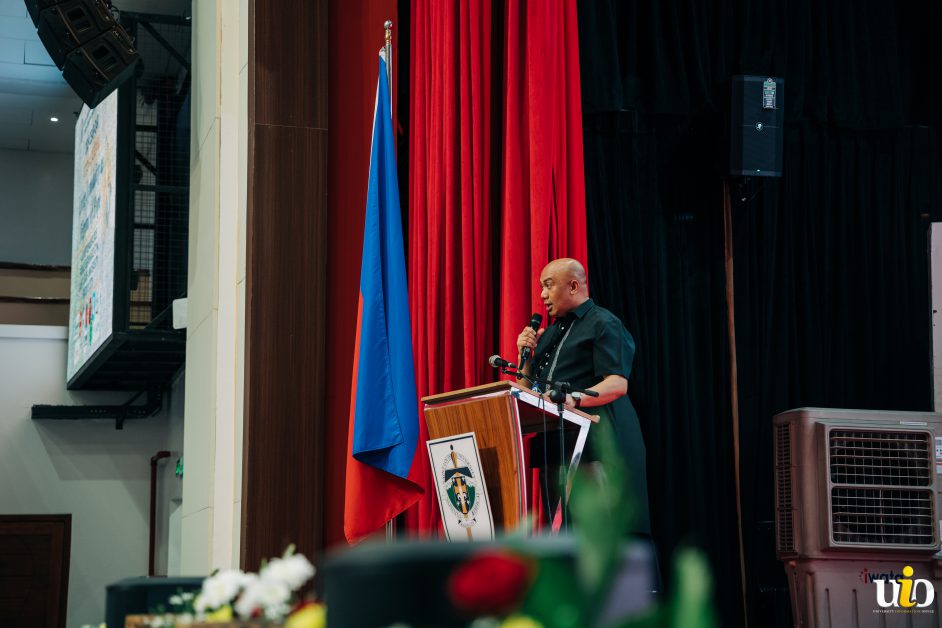
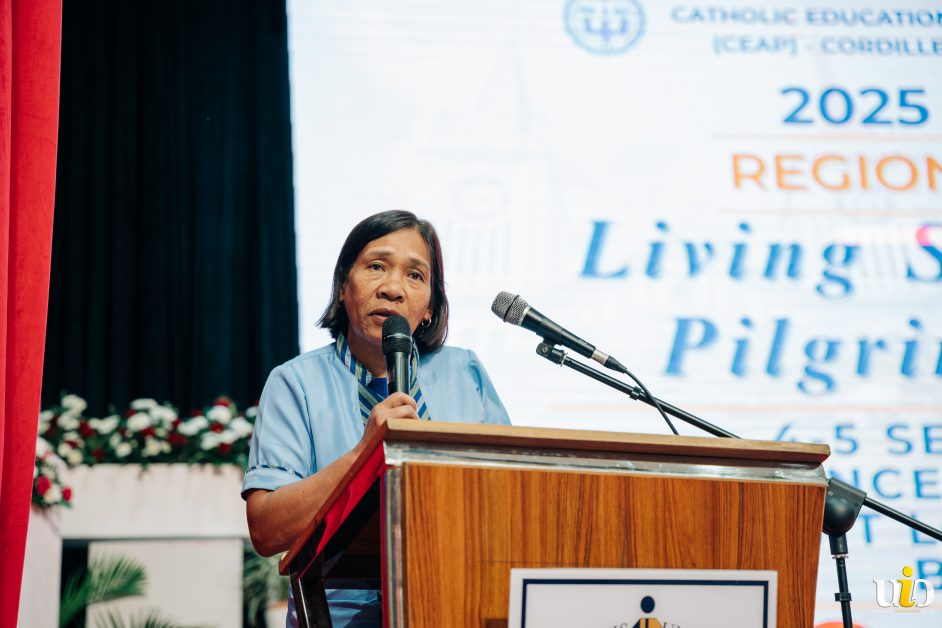
The Diocese of Baguio Schools as host of the 2025 CEAP-CAR Regional Assembly, represented by Mrs. Joyce V. Fernandez, Principal of San Isidro School of Abatan, Inc. expressed the words of gratitude to each and everyone as the event concluded, “Iyaman! Diyos ti angina. Matago tago taku! Matago tago ti CEAP-CAR!”
